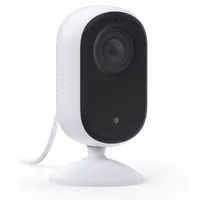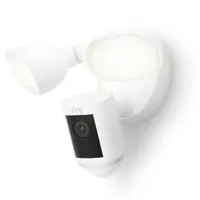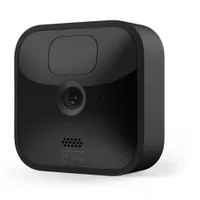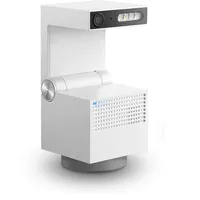The best home security cameras: indoor, outdoor and subscription-free cams
We've tested stacks of security cameras in real-world conditions to bring you this guide to the very best
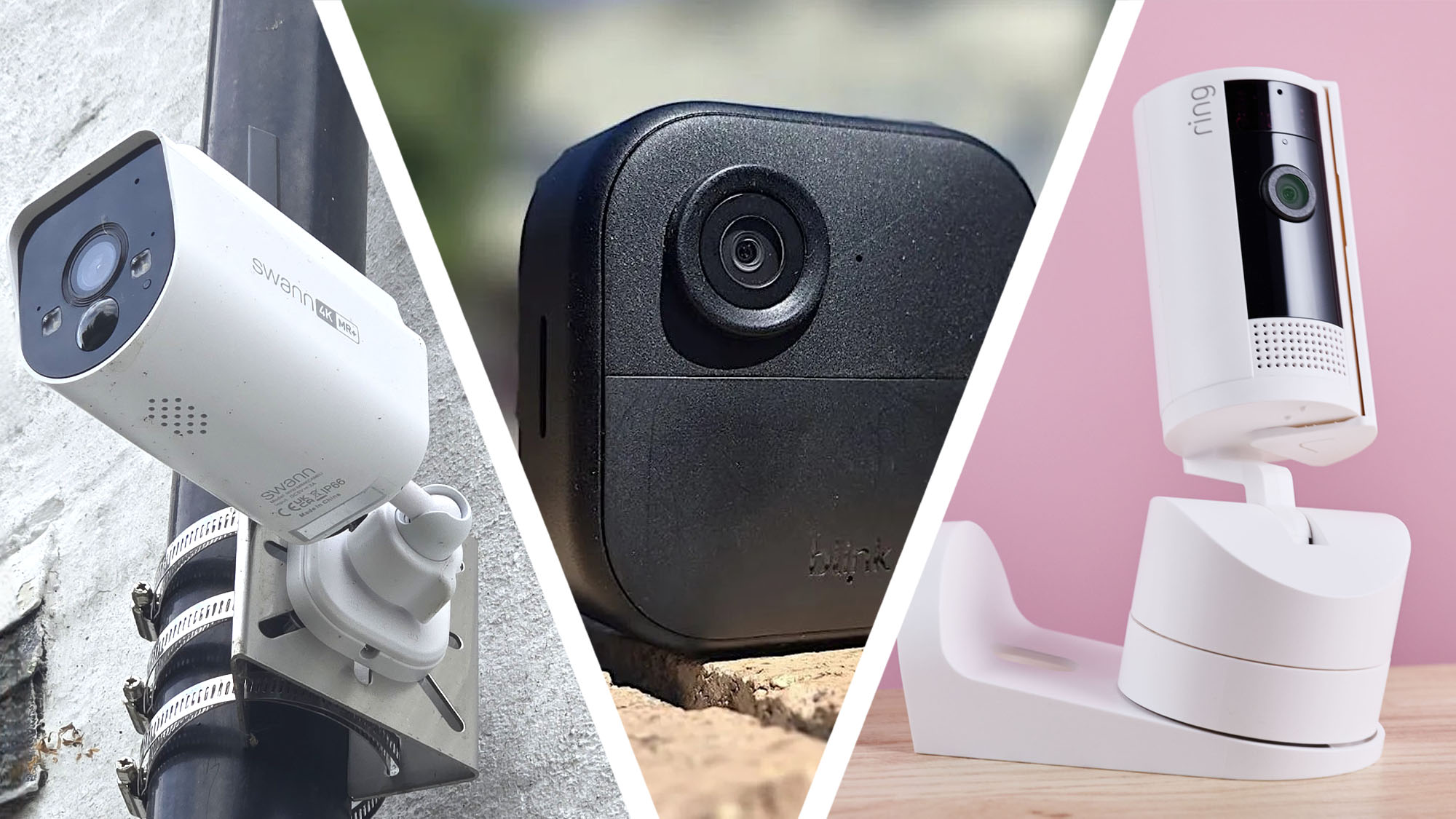
With one of the best home security cameras installed, you can rest easy knowing that your property and family are secure. Whether you live in a rented apartment or a spacious house, there are indoor and outdoor cameras to keep it covered.
We test scores of home security cameras here at TechRadar, from big brands like Ring and Arlo, through to smaller companies that are just starting out and have some innovative ideas. We install each camera in our own homes and put it through its paces in real world conditions, capturing footage in different lighting conditions, using the mobile app to assess the quality of footage, and checking how well it connects to the rest of our smart home devices.
We'll also let you know about any potential drawbacks, such as whether the camera requires a subscription to unlock certain features, or to store footage in the cloud.
For example, if you have a Ring security camera, you'll need a Ring Home subscription (starting at $4.99 / £4.99 / AU$4.95 per month) for features like online storage and access to 180 days of event history. If you have a Google Nest camera, you'll need to pay $8 / £6 / AU$12 per month for Nest Aware membership to check historic events. In both cases, 24/7 recording requires a premium subscription plan.
The latest addition to this guide is the Baseus Security S2, which has a solar panel that rotates to follow the sun, and records crisp 4K footage with no subscription fees. We'll soon be testing new AI-enhanced security cameras from Ring and Google Nest as well.
The best home security cameras
Why you can trust TechRadar
The best home security camera overall
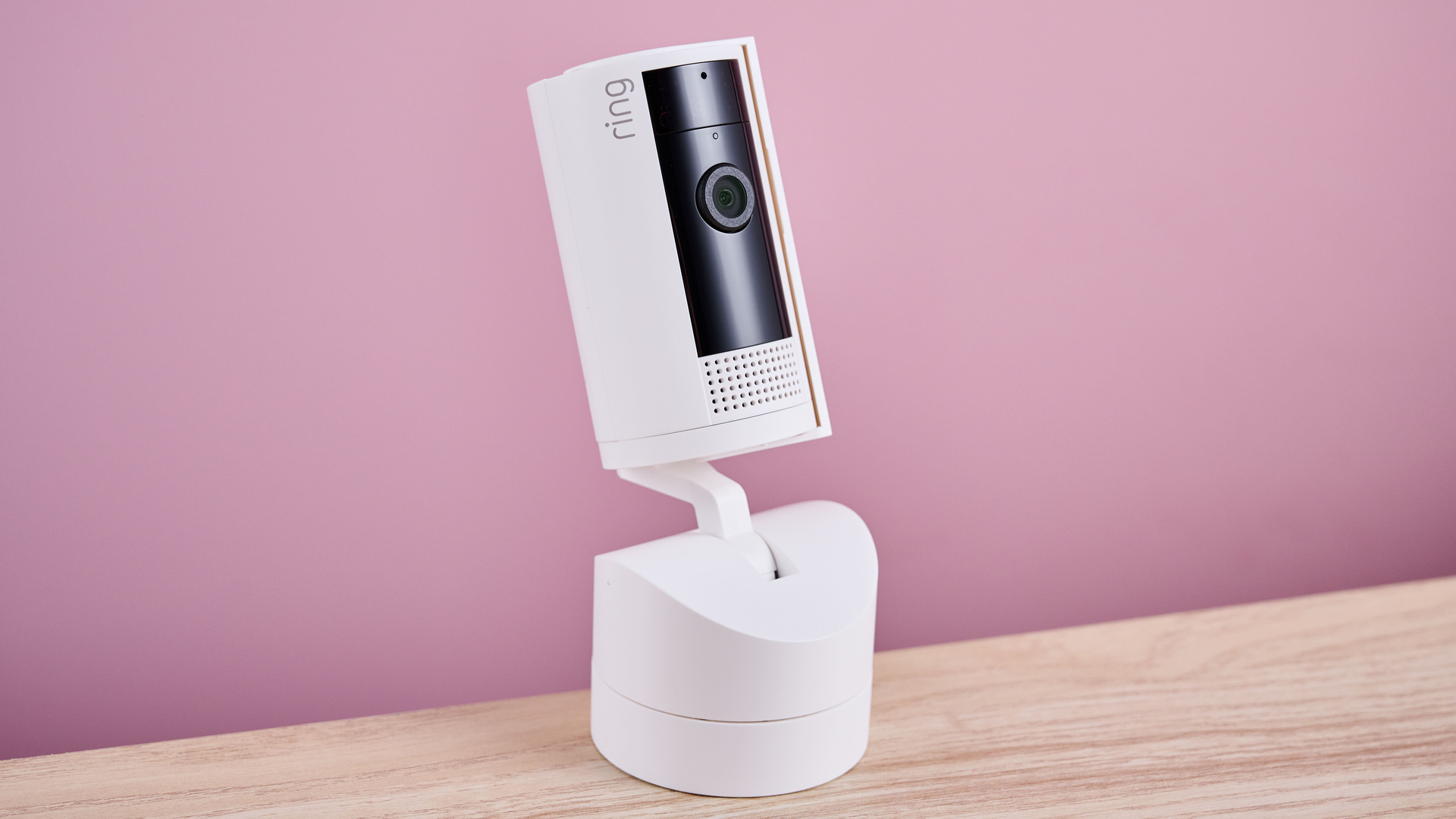
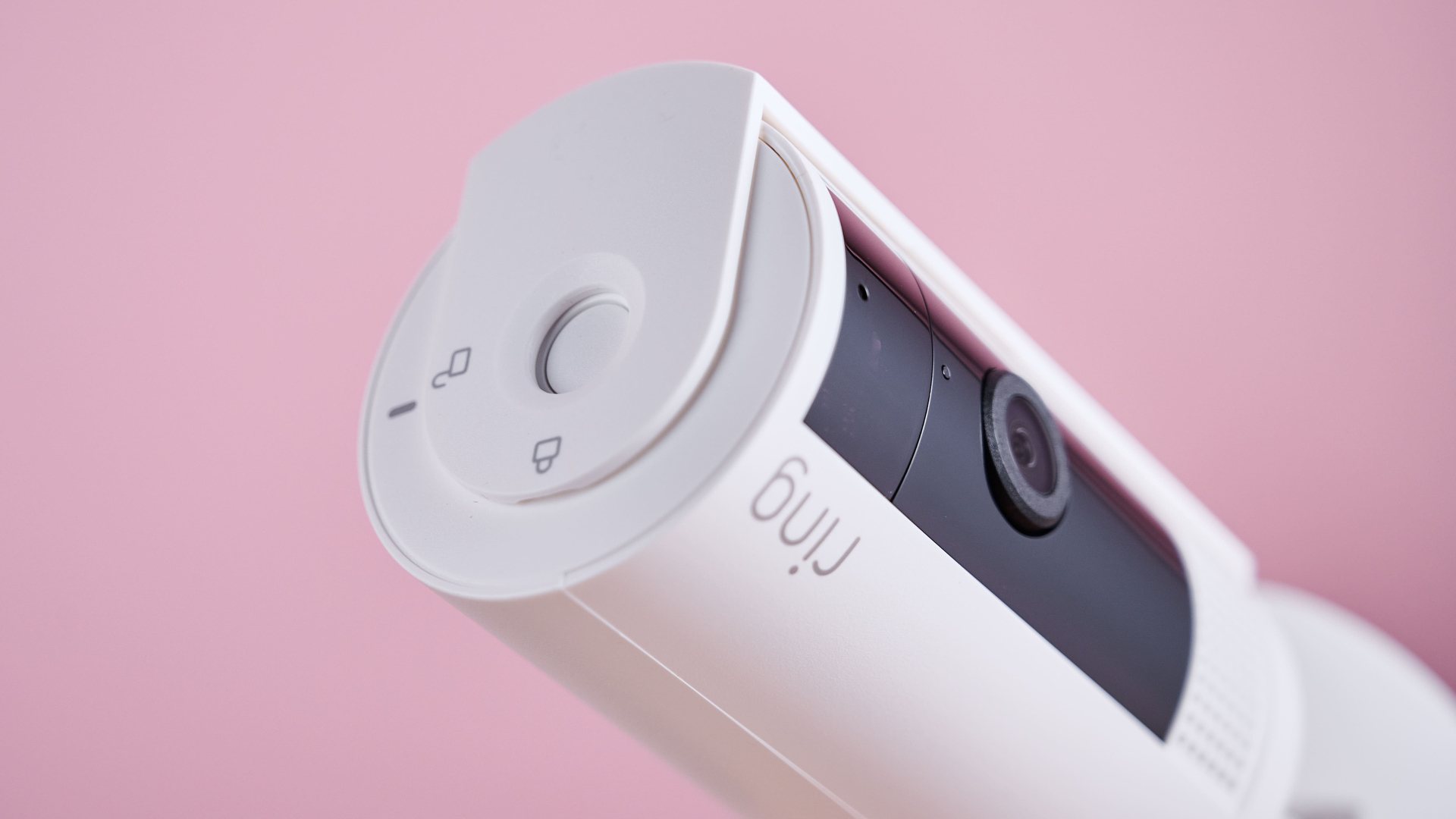
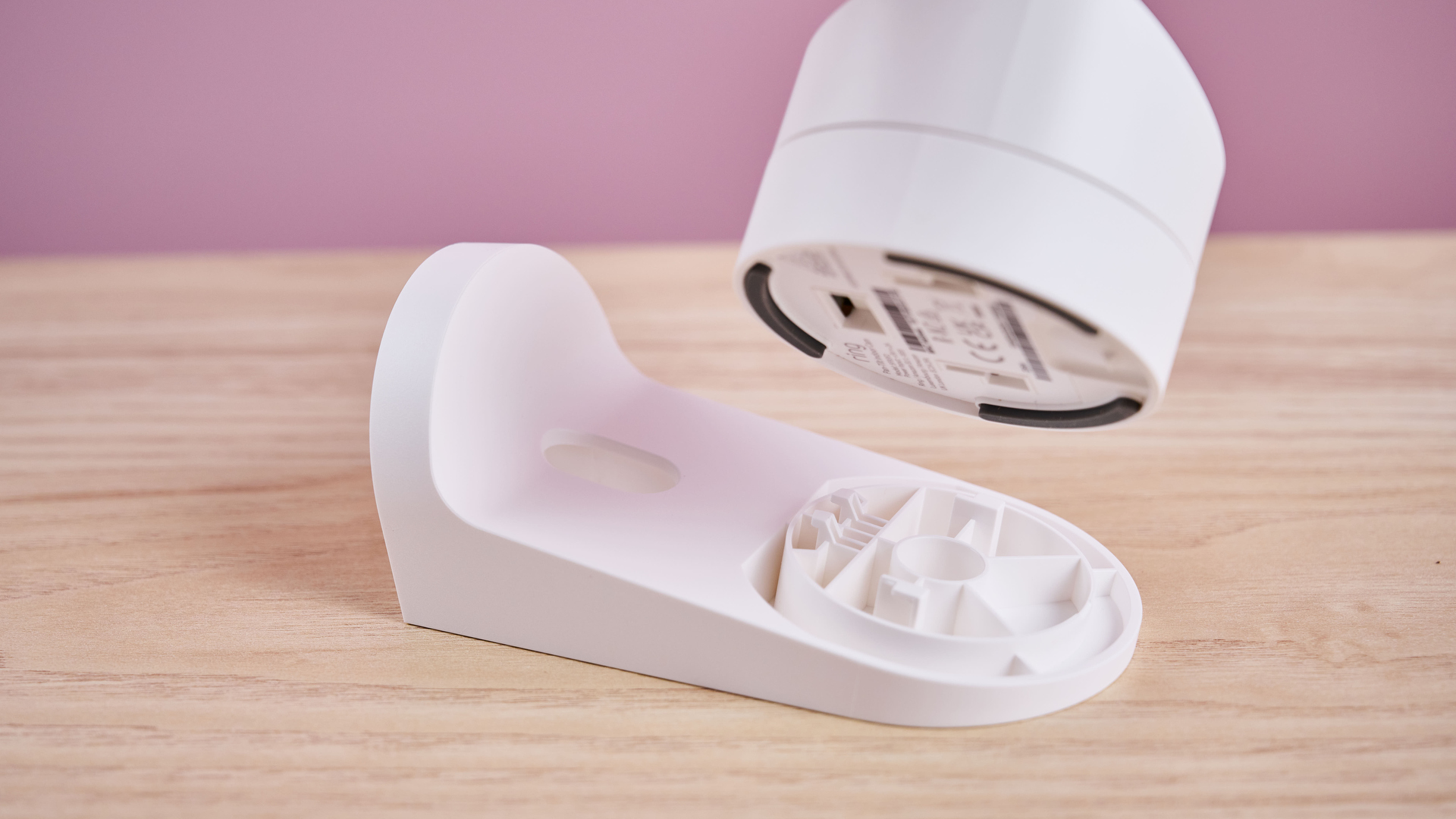
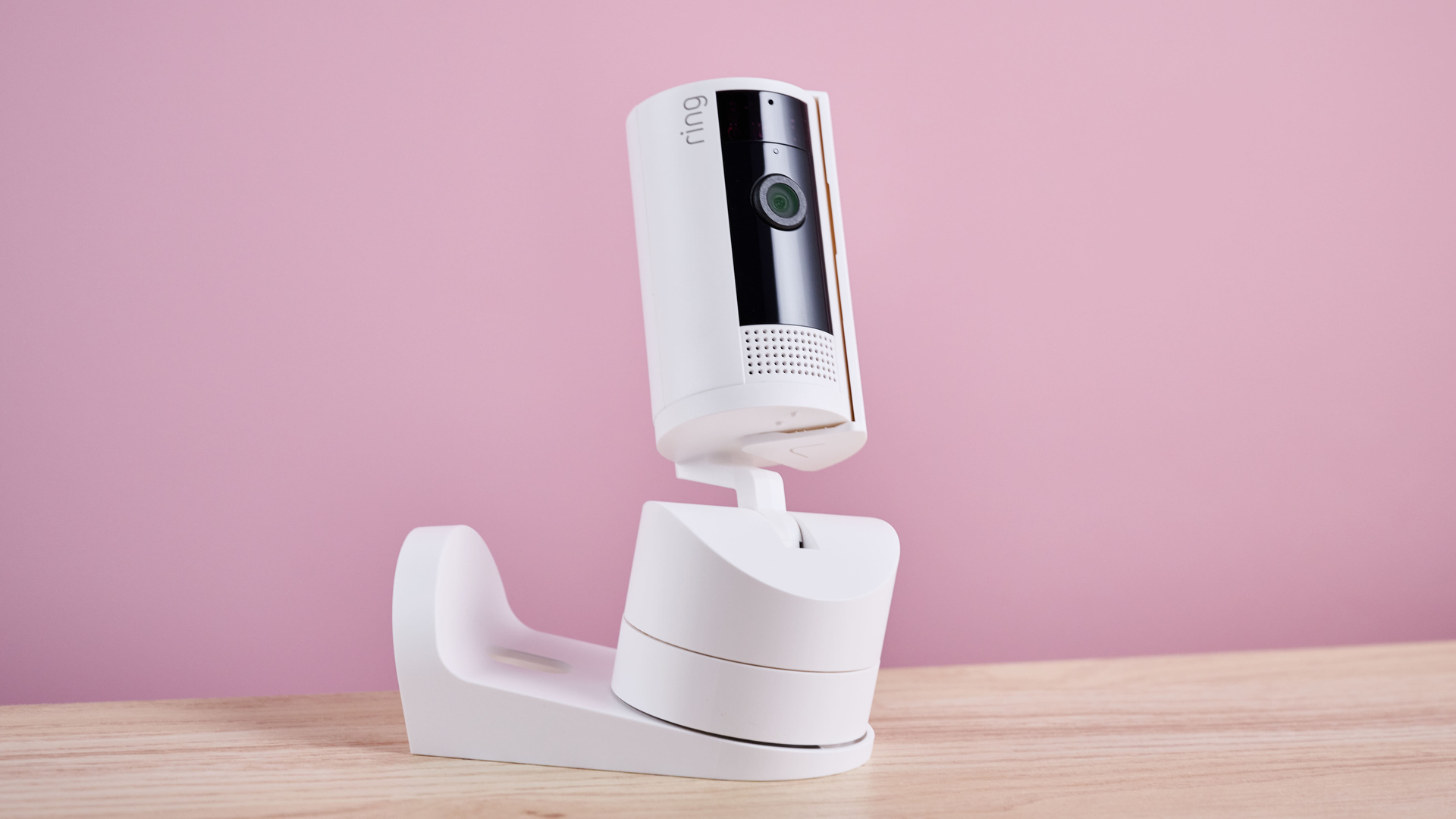
Specifications
Reasons to buy
Reasons to avoid
✅ You want a good view: With 360-degree rotation and 169-degree tilt, this little camera lets you see much more of your room than most home security cameras.
✅ You own other Ring products: This camera will work seamlessly with your other devices, and your existing Ring Home subscription.
❌ You want motion tracking: Somewhat surprisingly considering its range of movement, motion tracking isn't available here/
❌ You don't have a handy power socket: This is a wired camera, so unlike some others, you'll need a power socket within reach.
Ring's latest home security camera is also its best to date, with an impressive feature set and affordable price tag that make it our number one choice. You'll need a Ring Home subscription to get the most out of it - see our guide do I need a Ring subscription for full details - but it's one of the more affordable plans around and will also unlock the full features of any other Ring devices in your home (the company is known for making some of the best video doorbells).
Video is crisp and clear, with footage sent live to your phone or available for up to 180 days online (provided you're a Ring Home subscriber), with motion detection and alerts to let you know if someone enters its field of view. There's also a siren to scare off intruders, which our reviewer Cesci Angell said "was easily enabled by pushing a button on the app via the device's home screen; this caused the camera to make a loud security alarm sound, which I imagine could be capable of scaring off an unwanted guest."
As the name suggests, this little camera's standout feature is its ability to rotate 360 degrees and tilt 169 degrees, which gives you excellent visibility around your room, though it's a little surprising that there's no motion tracking - the camera seems like it would be ideally suited to this. Perhaps something to look forward to in the next model.
Read our full Ring Pan-Tilt Indoor Cam review
Attribute | Notes | Score |
|---|---|---|
Value | The Pan-Tilt Indoor Cam is a reasonable price for the features and picture quality, however, the paywall that restricts access to recordings is unfortunate. | 4.5/5 |
Design | The camera’s ability to pan and tilt is convenient but it seems Ring missed a trick with the lack of motion-tracking. | 4/5 |
Performance | The picture and audio quality were good, and the camera handled motion well, but the Color Night Vision proved a little underwhelming. | 4.5/5 |
The best budget home security camera
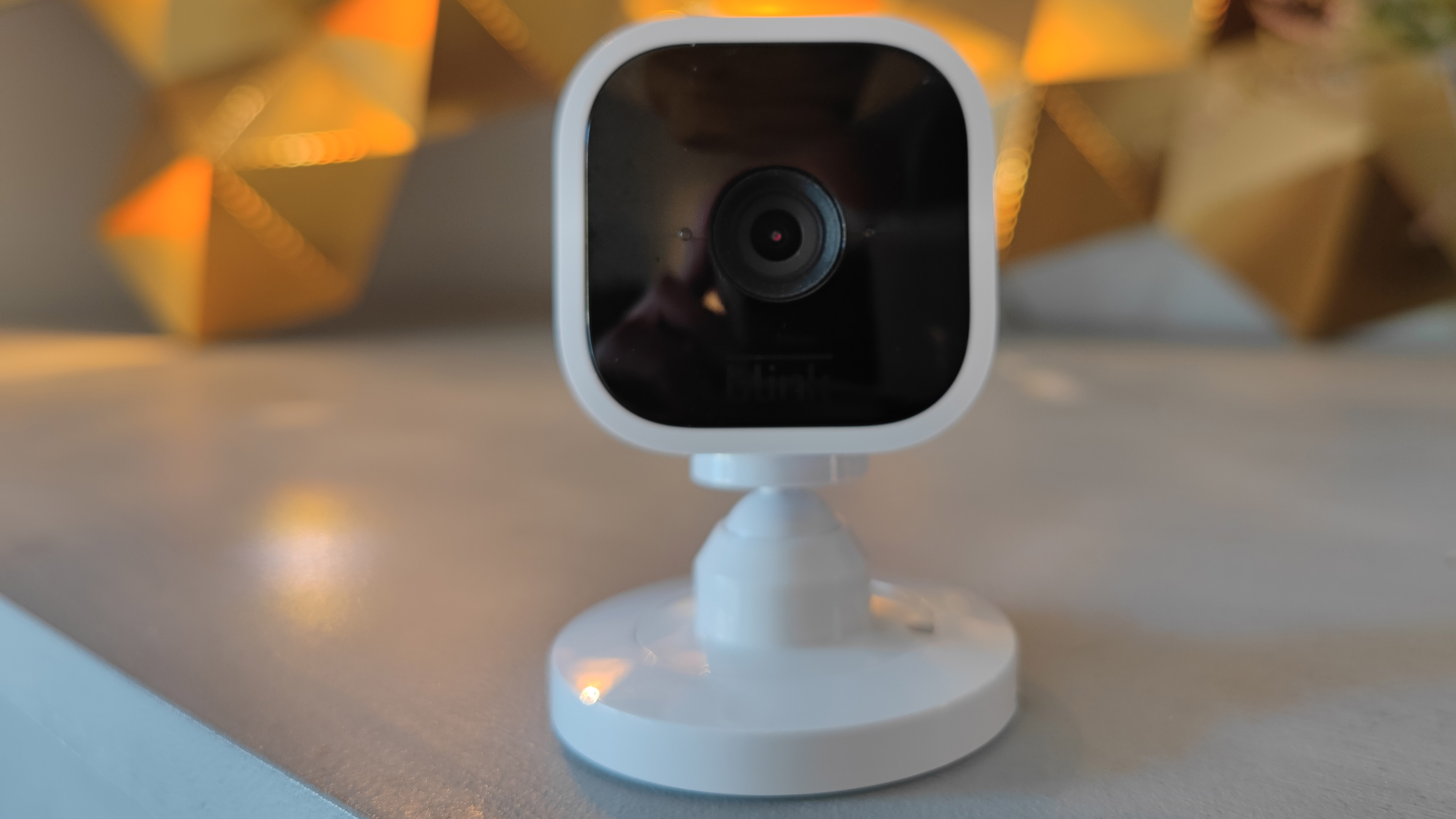
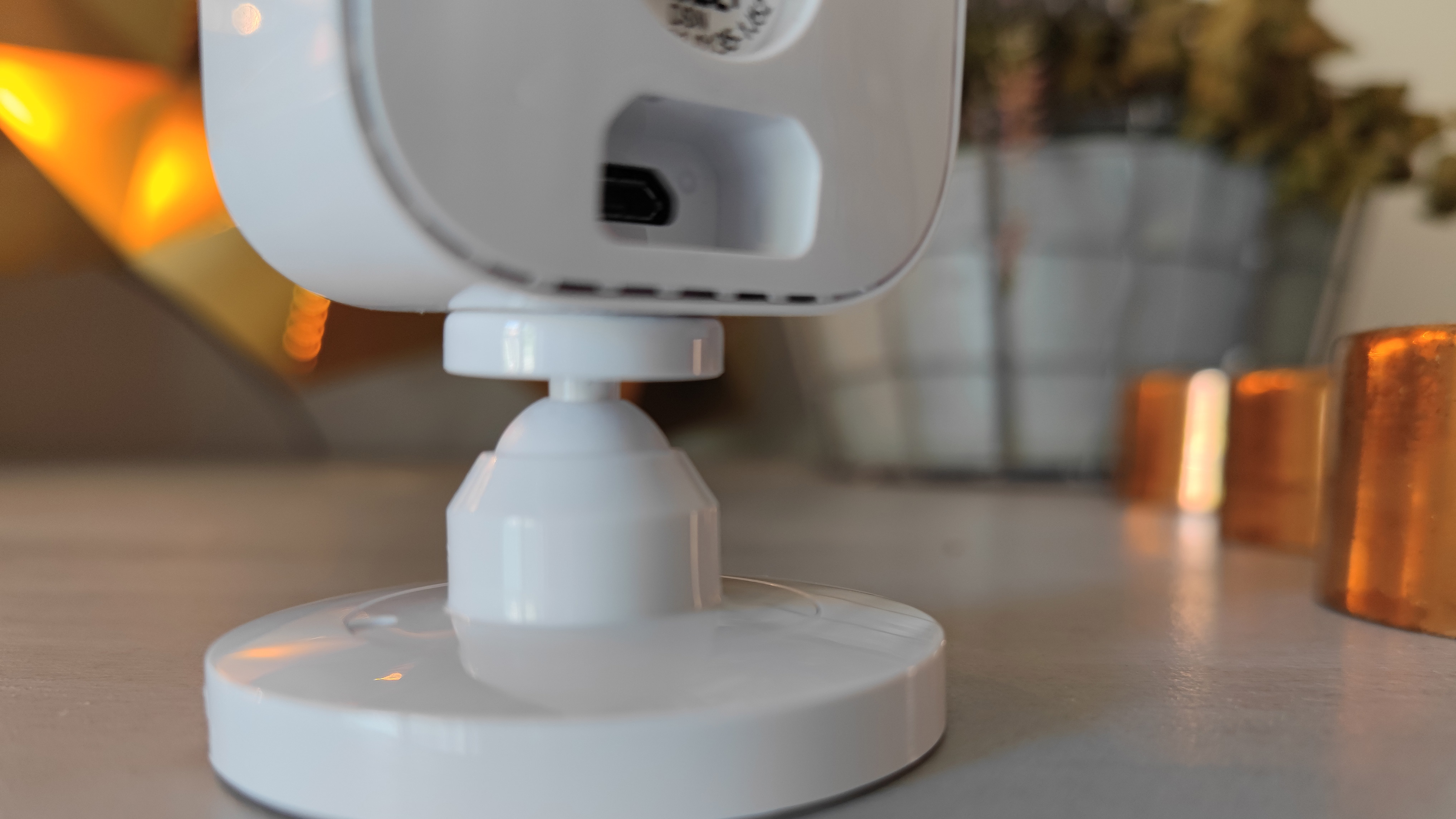
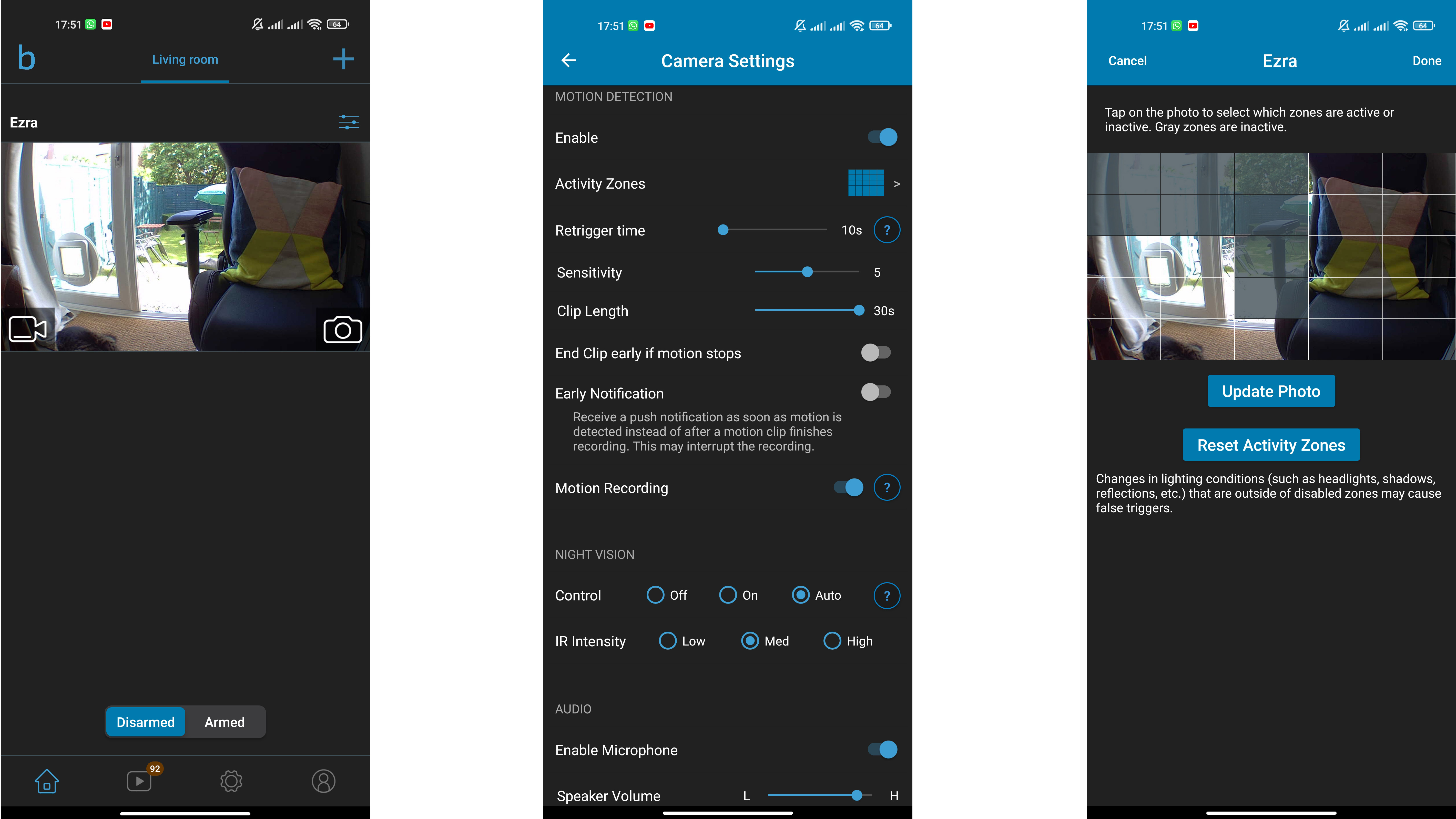
Specifications
Reasons to buy
Reasons to avoid
✅ You have an Amazon Echo Show: The Blink Mini works seamlessly with Alexa devices, and the Echo Show lets you see live footage with a simple command.
✅ You're not worried about storage: Storing video requires an additional module, but that's not a problem if you only want live feeds.
❌ You want person detection: You'll need a more advanced camera for this.
❌ You want to go wireless: If you need a battery-powered camera, take a look at the Blink Outdoor instead.
One of the most affordable home security cameras on the market, the Blink Mini may be compact, but it certainly packs a punch. The full HD footage it records during the day and at night is clear, and we found the camera simple to set up and easy to control using the app.
It offers both cloud and local storage, although you'll need to purchase an additional sync module if you want to use local storage, as unlike the Blink Indoor and the Blink Outdoor, this isn't included. There's a free cloud storage trial bundled with the camera, but you'll need to pay a fee if you want to continue with that option.
The Blink Mini lacks person detection, something the only slightly more expensive Ring Indoor Cam (above) offers, but for those that want a device with a small footprint, you'll be hard pushed to do better than the Blink Mini.
Read our full Blink Mini review
Attribute | Notes | Score |
|---|---|---|
Value | Affordably priced for the camera itself, but to get the most out of it you'll need either a Blink subscription or a Blink Sync Module 2 as well. | 3.5/5 |
Design | Not striking to look at, but inoffensive and discreet. It's not battery-powered, so its long power cable is very useful. | 4.5/5 |
Performance | Crisp Full HD video, clear night vision, and excellent motion sensitivity. Where it struggles is video storage, as mentioned above. | 4/5 |
The best home security camera for outside
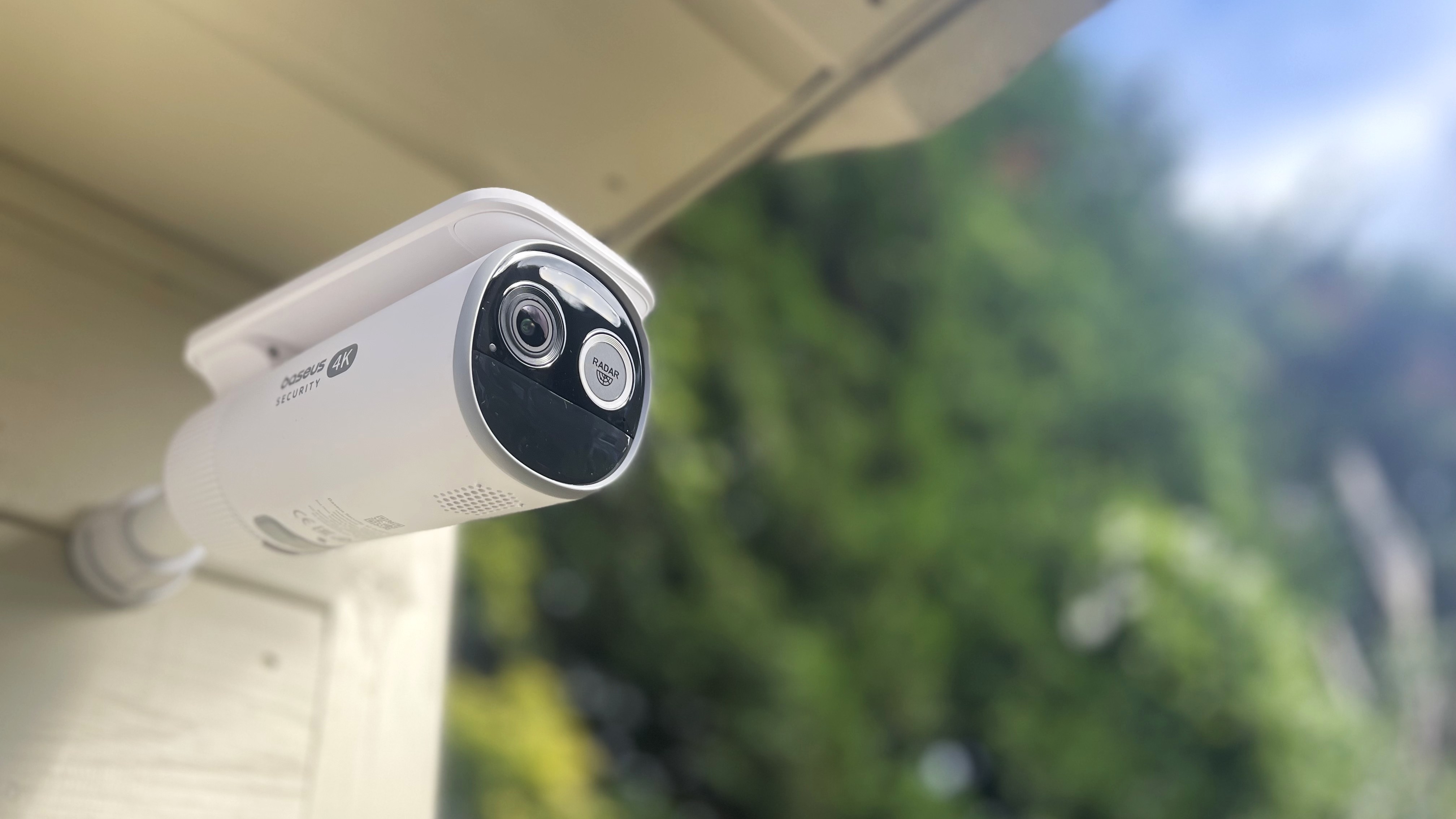
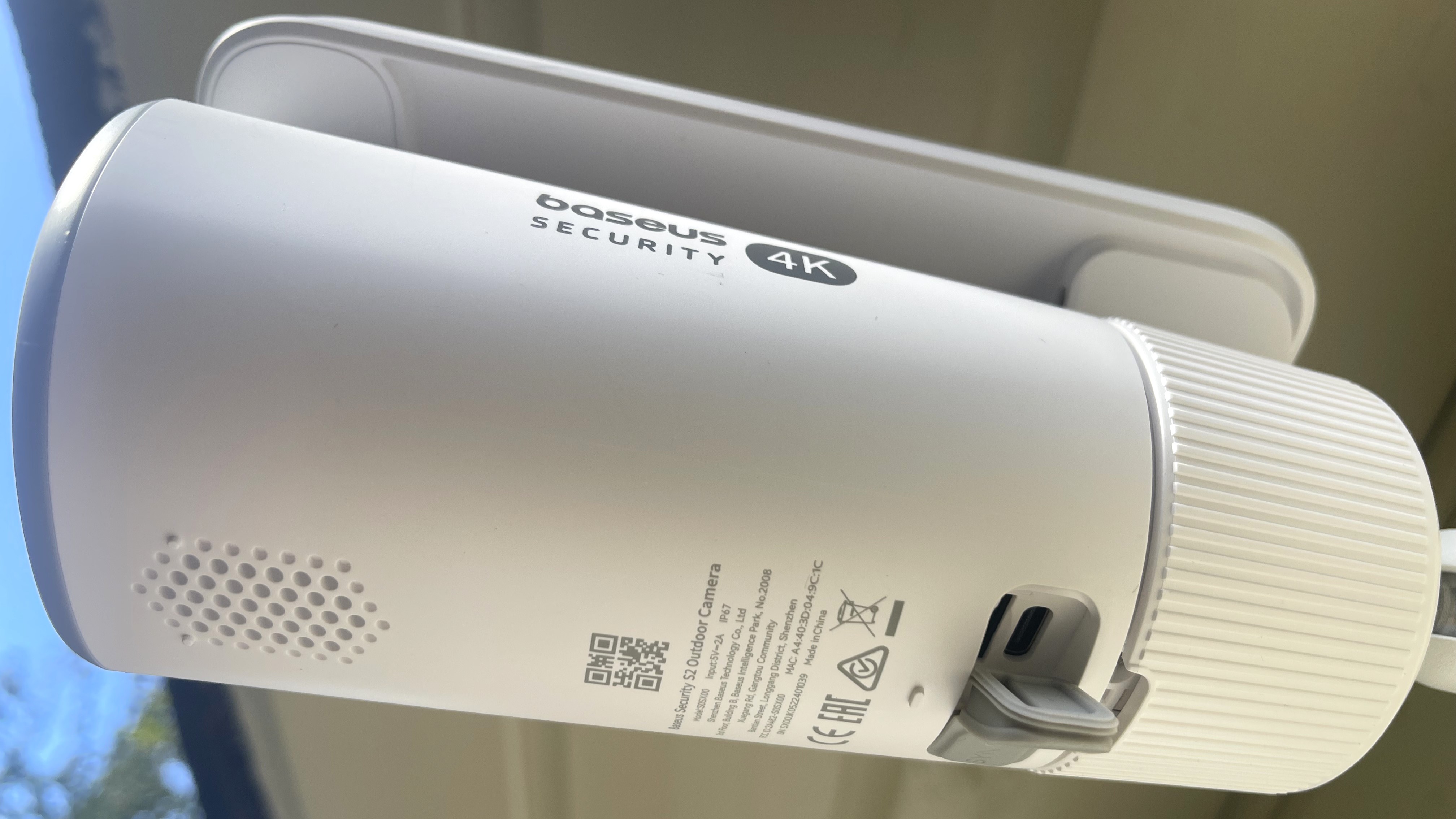
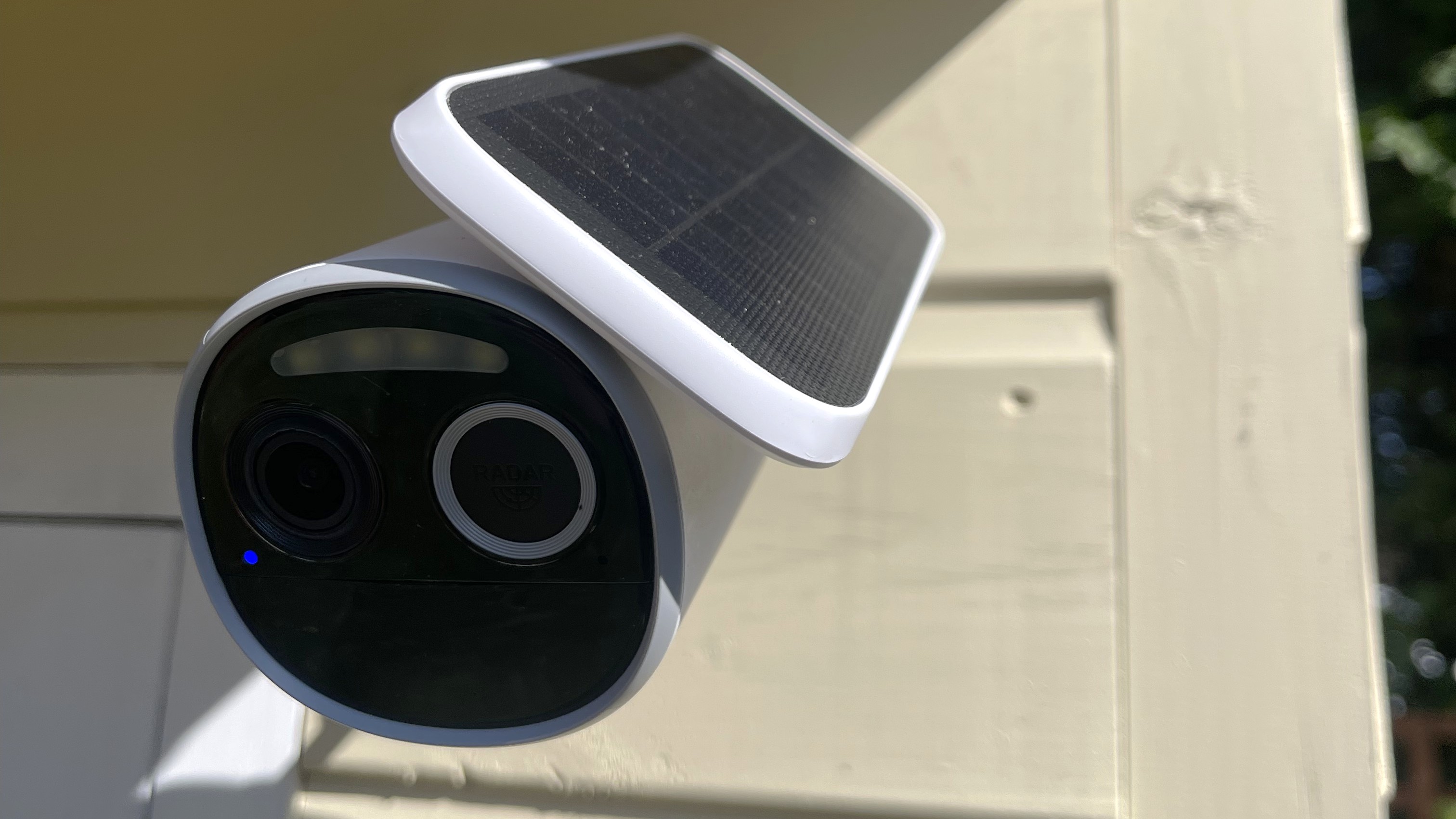
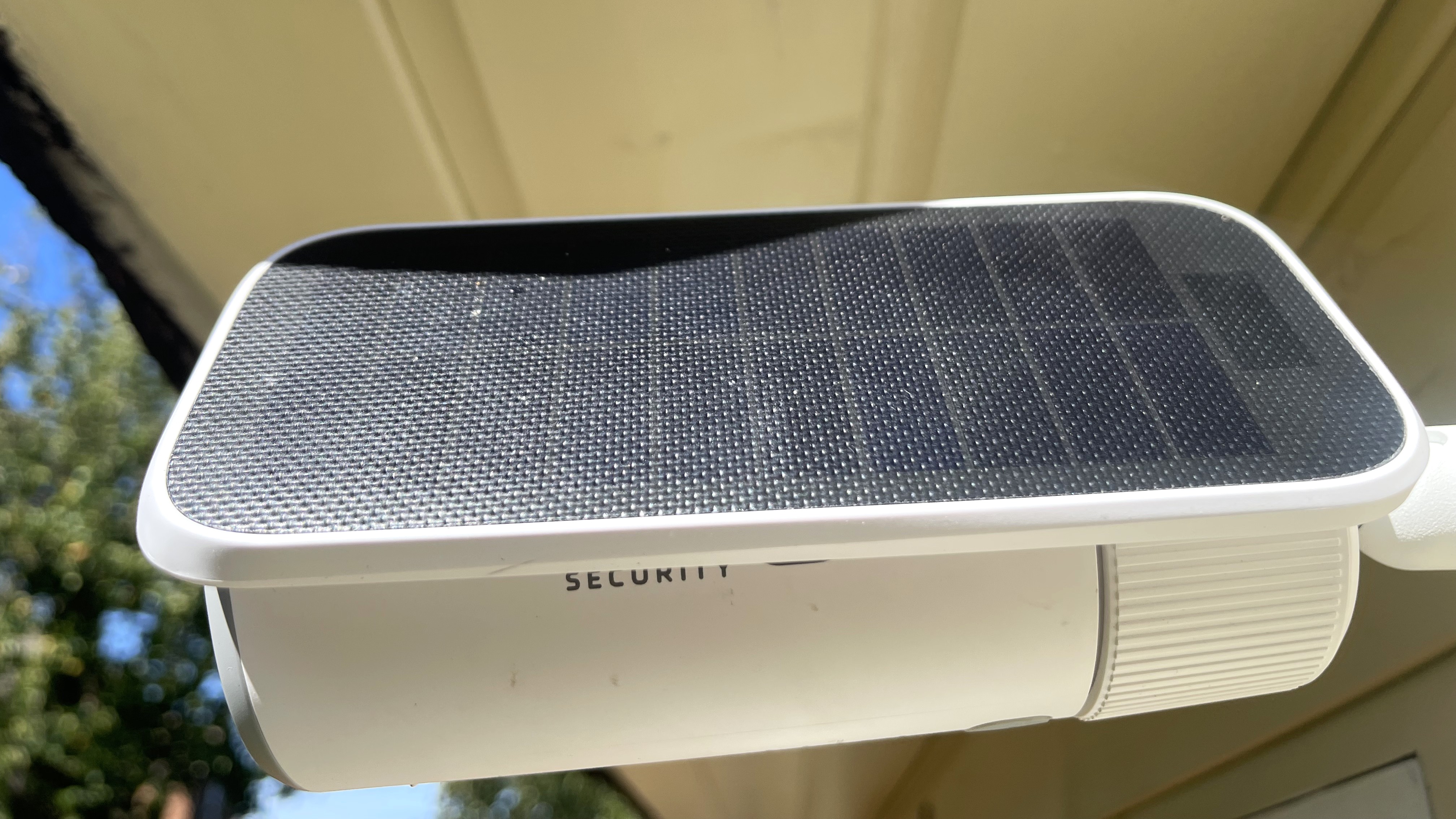
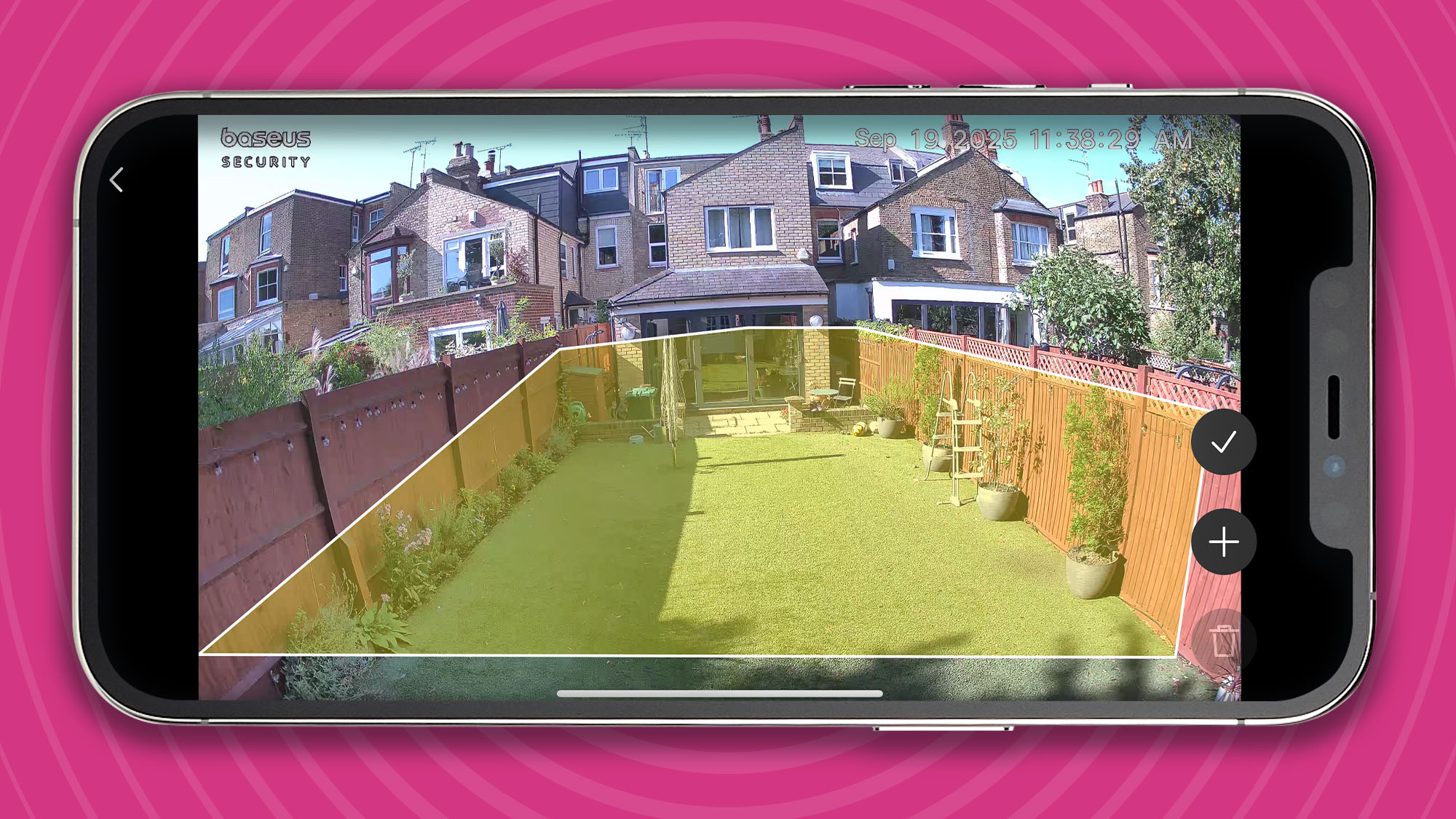
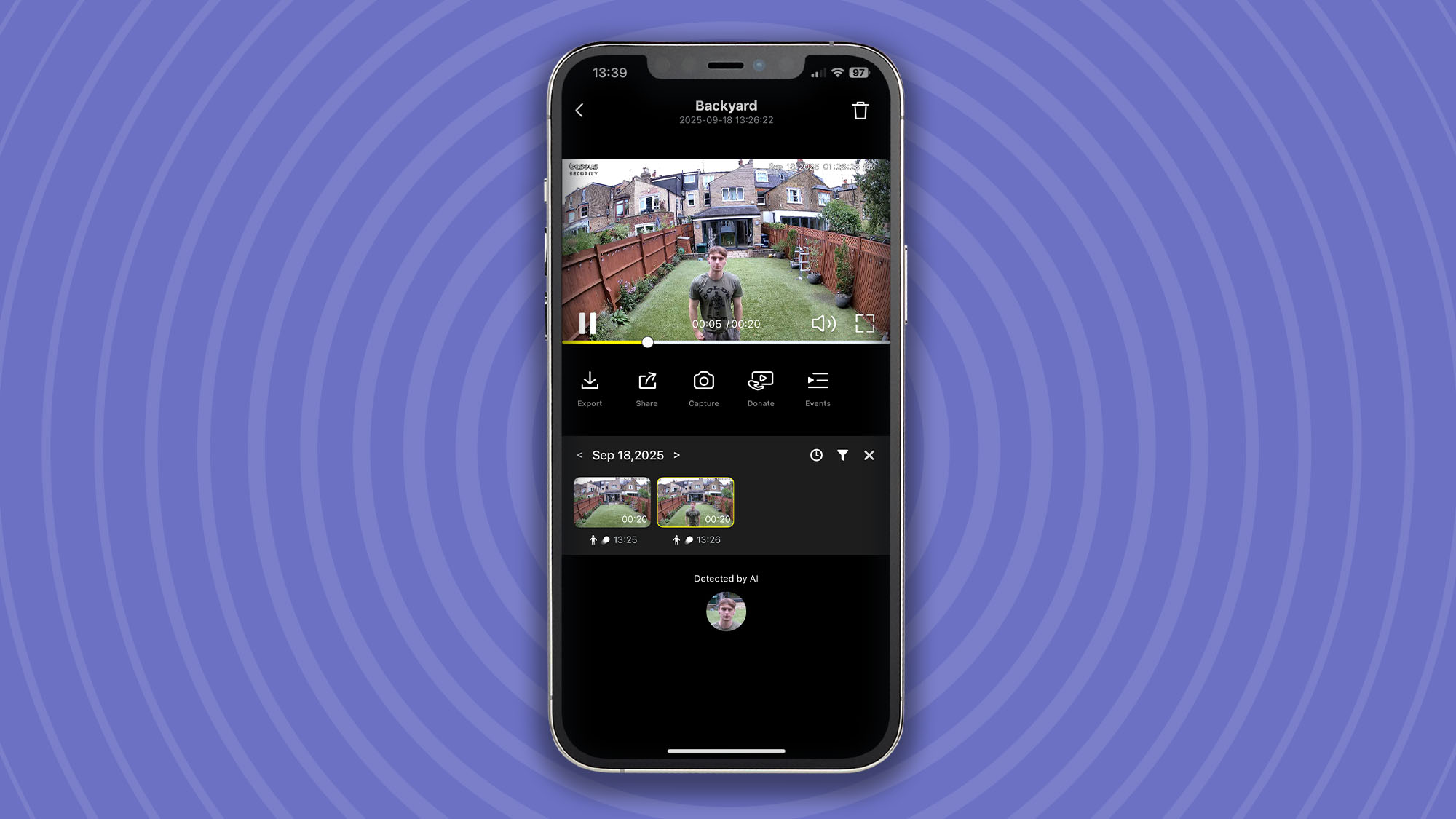
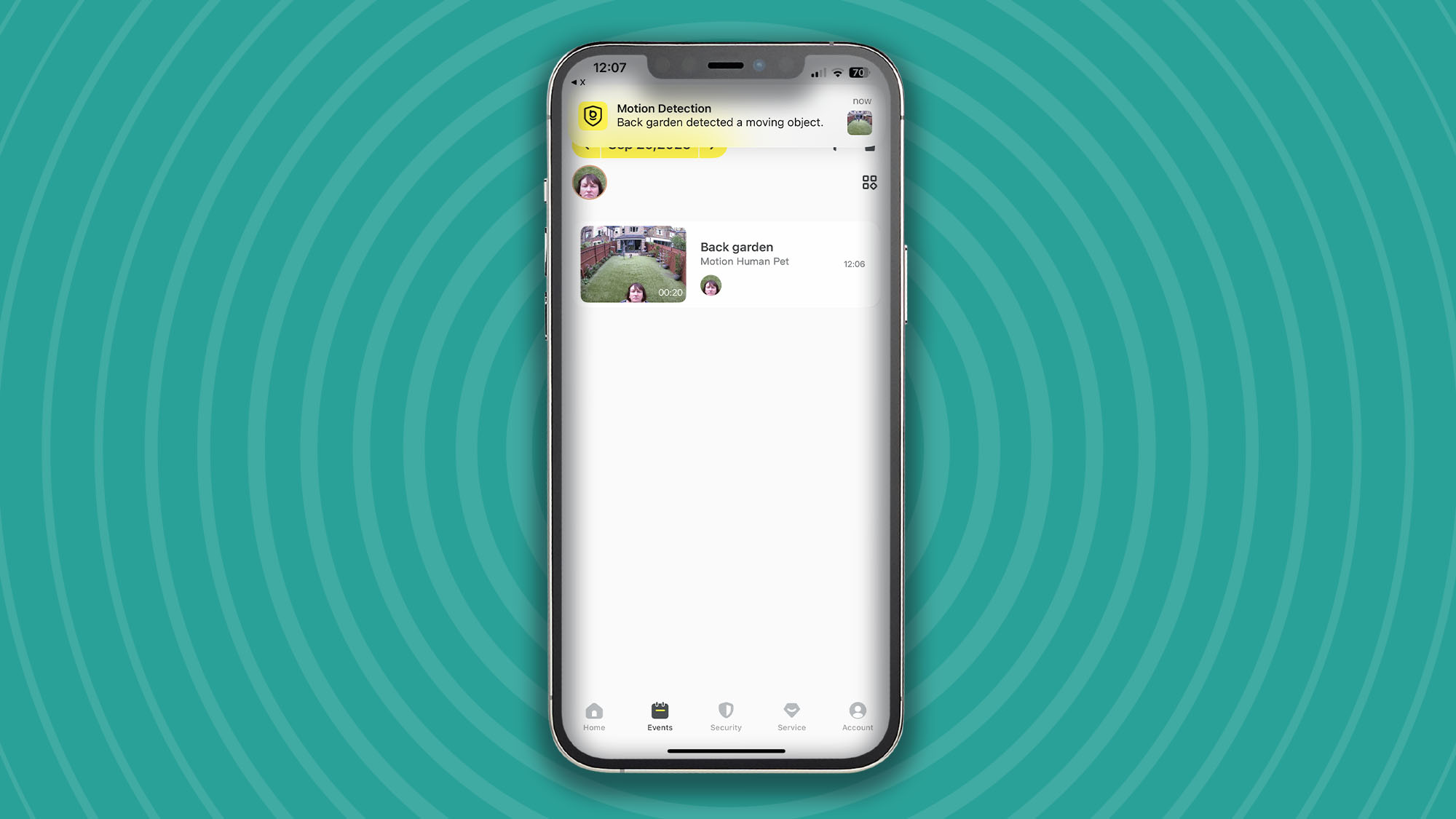
Specifications
Reasons to buy
Reasons to avoid
✅ You want to maximize power from the sun: A large rotating solar panel means that this outdoor camera is able to maximize power from the sun so you shouldn’t need to charge it very often especially if you live in sunny climes.
✅ You want high quality images: Boasting 4K resolution, the Baseus device provides some of the sharpest images we’ve ever seen from an outdoor camera.
❌ You want to install it in a shaded area: You can power this camera from the mains via the USB-C socket, but it really comes into its own is with the solar panel.
❌ You want a cheap solution: There are many cheaper cameras around, but always bear in mind that you may need to pay a monthly subscription fee with some devices.
The Baseus Security S2 solves one of the biggest problems with outdoor cams – battery life – with a large solar panel that rotates around the camera's case to follow the sun as it moves across the sky. It's an ingenious idea and really works (provided you don't mount the S2 in the shade).
The Baseus Security S2 captures crisp 4K footage, and includes some excellent features that other brands might charge a subscription fee for, including facial recognition, which lets you upload photos of friends and family in the app, then notifies you when they're spotted. It worked extremely well during our tests
We were also very impressed by the lack of false positives. Some security cameras we've tested are triggered by every breath of wind, but on its middle sensitivity setting, the S2 only started recording and sent us a notification when there was actually something to see. You can choose whether to include vehicles and/or pets, or just look out for people.
Baseus doesn't require you to pay a fee for cloud storage, either. The S2 is compatible with SD cards up to 256GB, and your footage is encrypted for security. The only downside is that the SD card isn't bundled with the camera to begin with.
The Baseus Security S2 isn't the cheapest camera around, but when you consider that it's a one-off purchase with no subscription charges, it becomes a lot more appealing. An excellent home security camera that comes highly recommended.
Read our full Baseus Security S2 review
Attribute | Notes | Score |
|---|---|---|
Value | In the UK, the camera isn’t particularly cheap (although it works out cheaper in the US and Australia). However, the main bonus is you don’t have to pay an expensive monthly subscription so it does work out better in the long run. | 4/5 |
Design | A white tubular design, the Baseus Security S2 is a pretty classy looking security camera. Best of is the solar panel above that rotates towards the sun to maximize power. | 4.5/5 |
Performance | Picture quality is excellent and thanks to the inclusion of radar there are far fewer false alerts than with many cameras. However, facial recognition technology is still a work in progress. | 4.5/5 |
The best home security camera with local storage
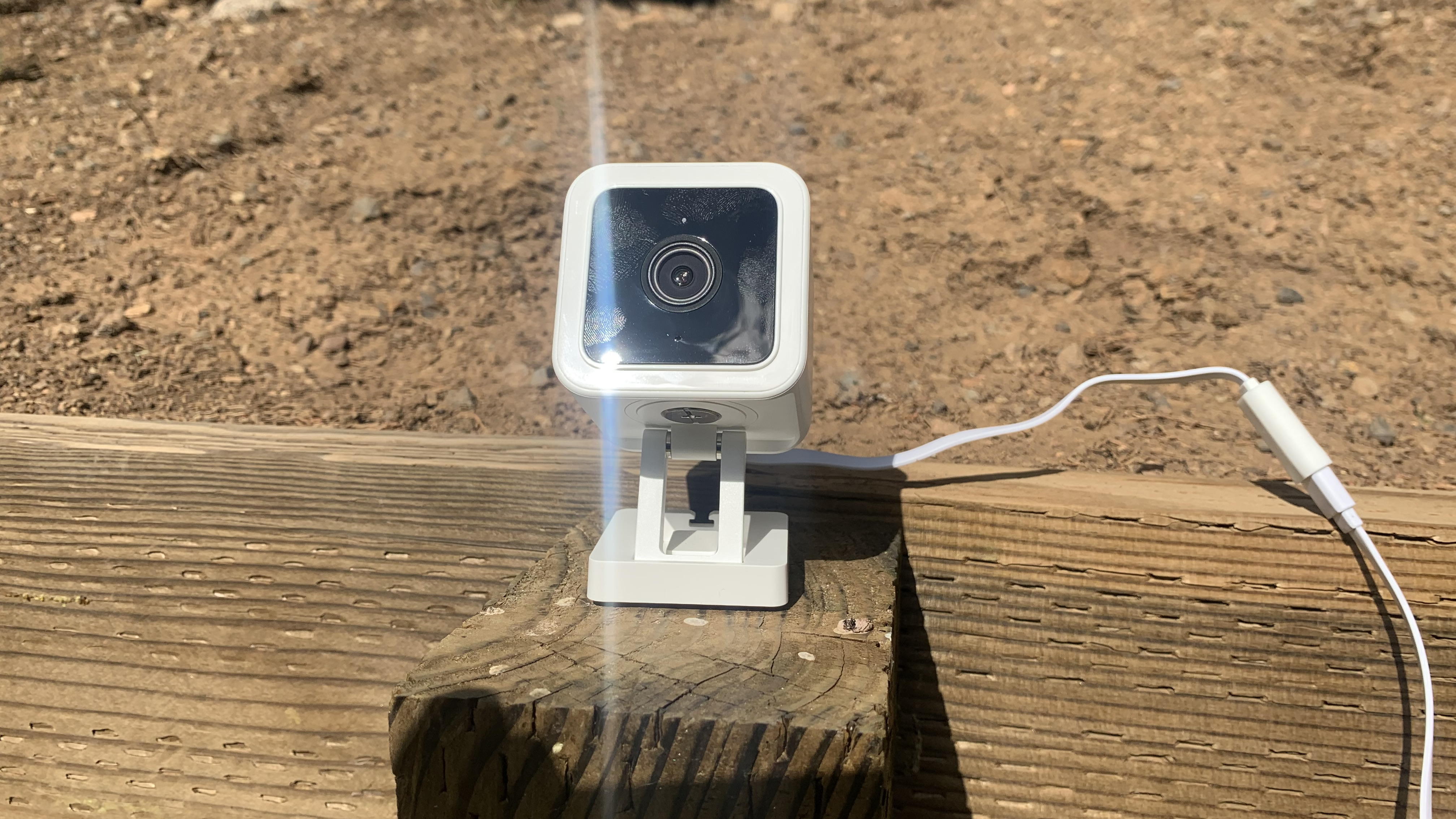
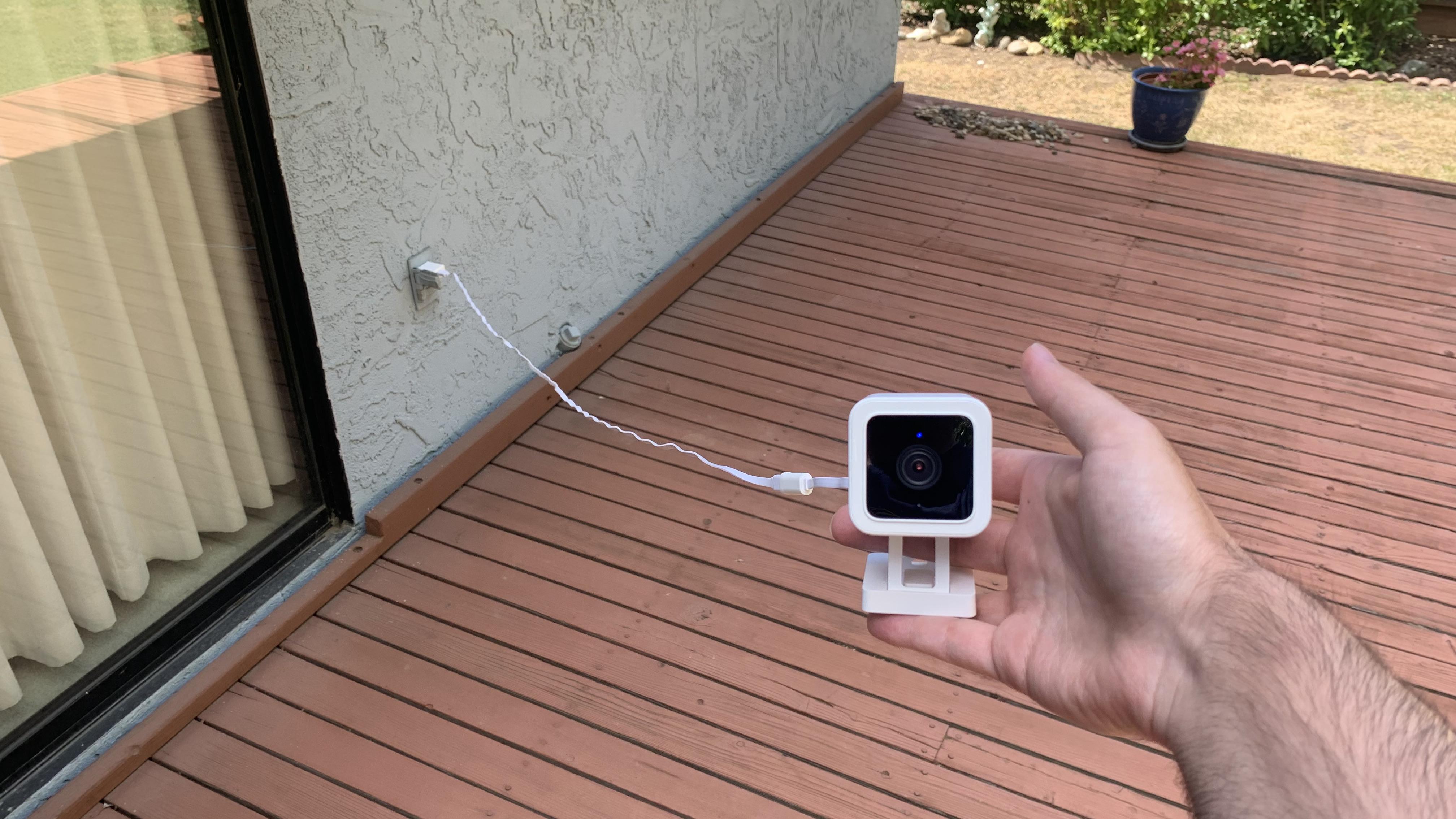
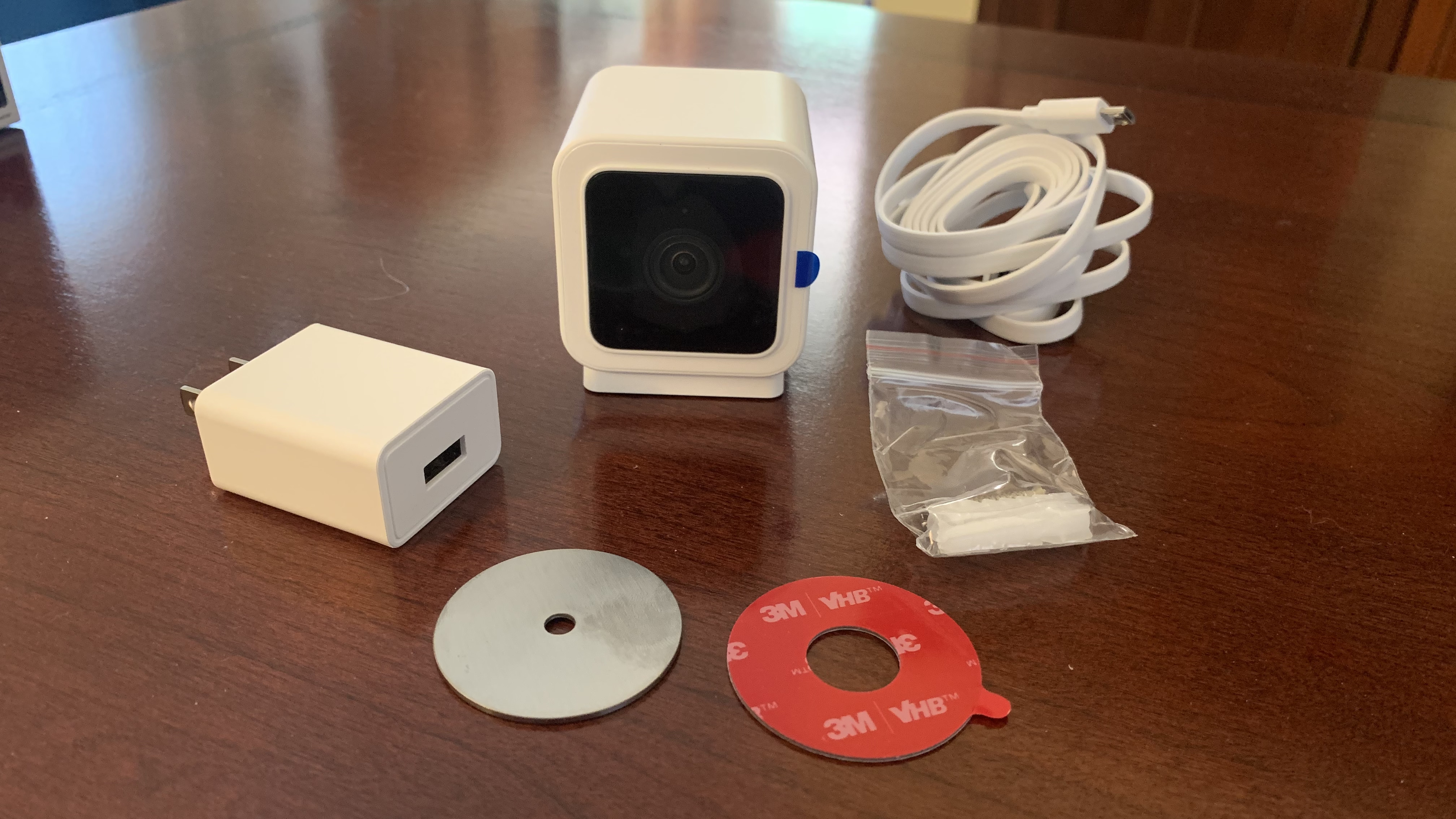
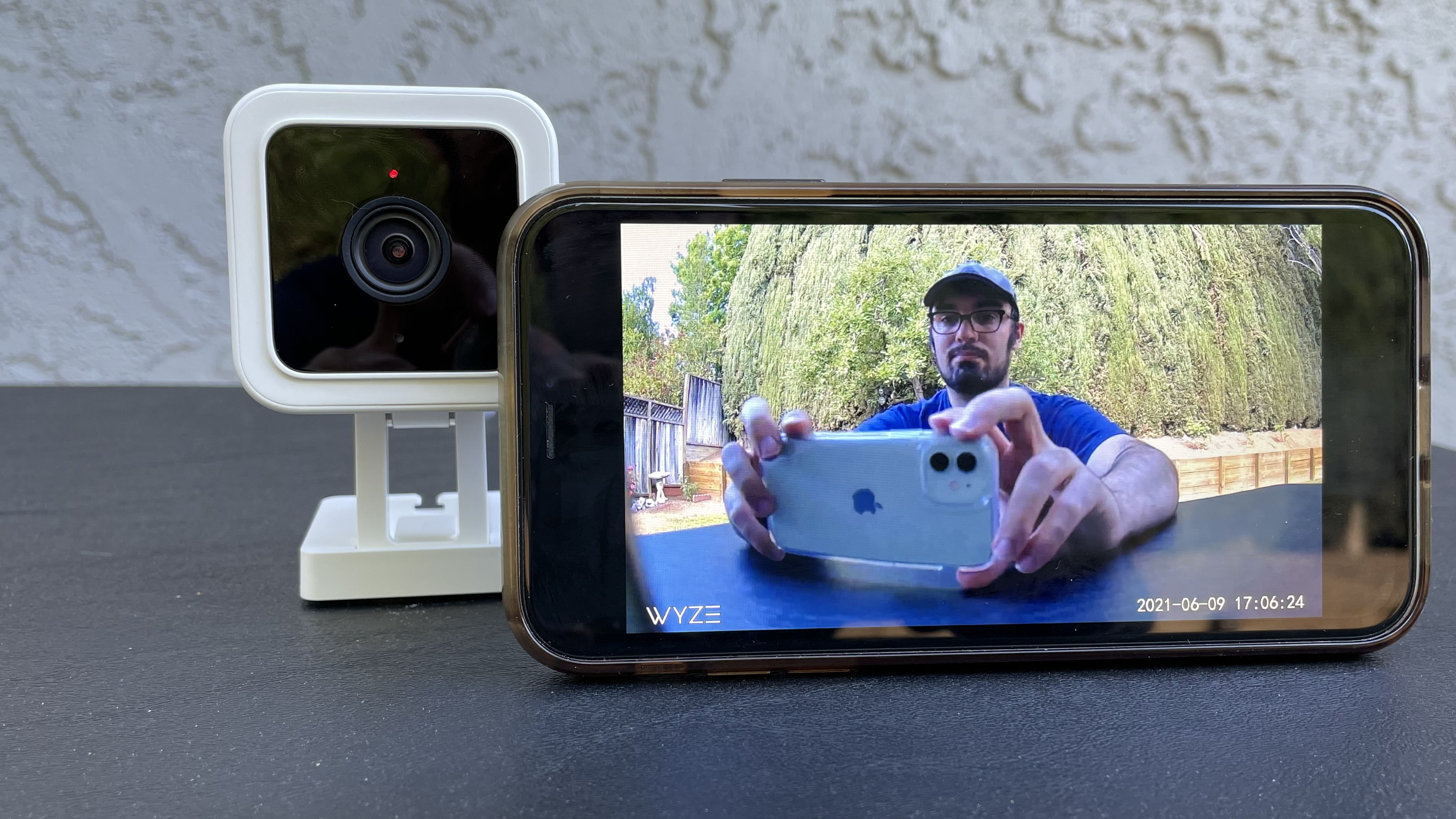
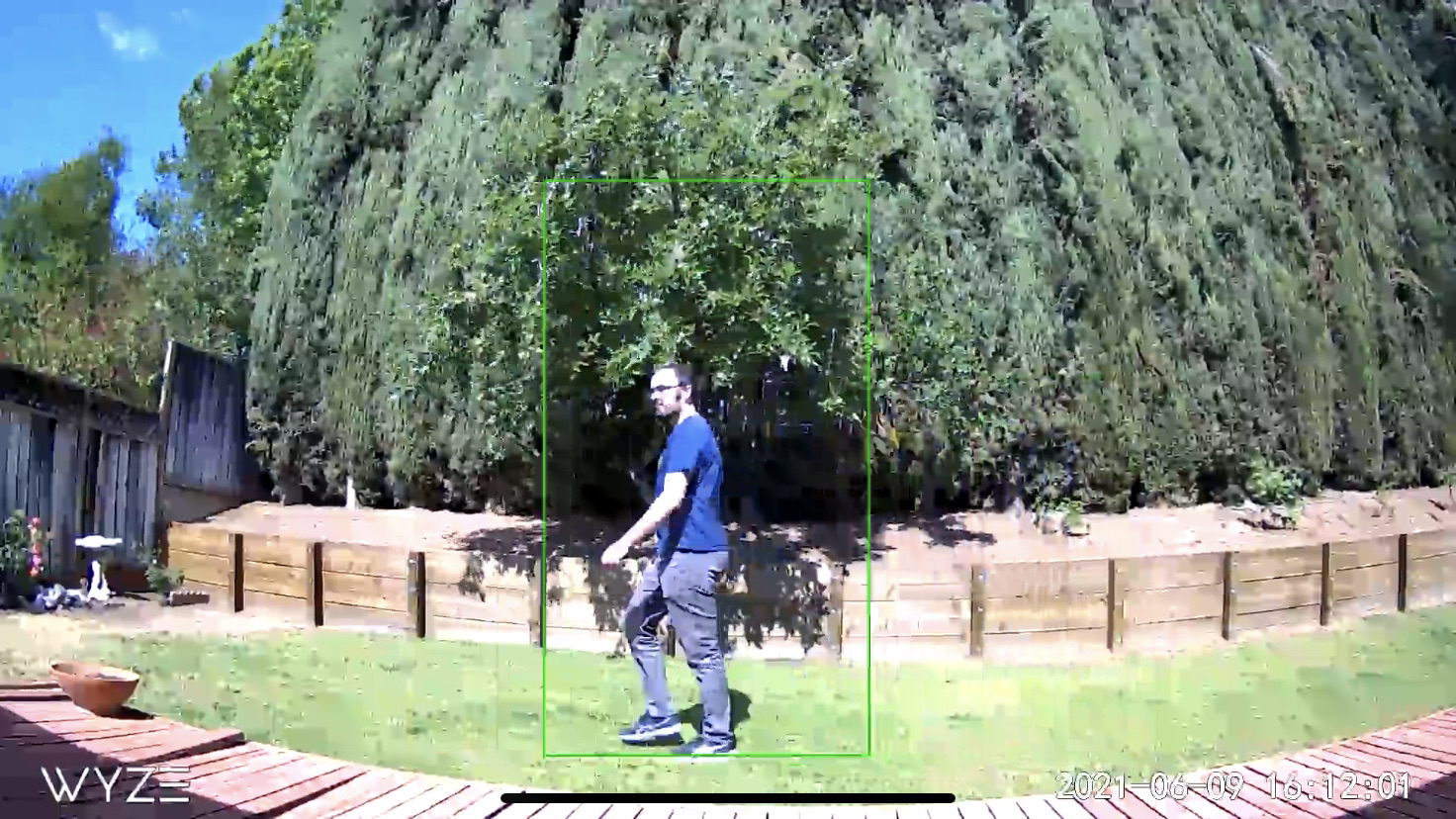
Specifications
Reasons to buy
Reasons to avoid
✅ You need 24/7 recording: With 32GB local storage, the Wyze Cam v3 can record continuously for days.
✅ You want discreet night recording: Most cameras rely on spotlights to capture footage after dark, but not this one.
❌ You want super clear footage: The picture quality from the Wyze Cam v3 is only average. If you want more clarity, look for a 2k or even 4k camera instead.
❌ You need flexibility with positioning: This camera's power lead is only 6ft long, which limits your options
If you're looking for an indoor/outdoor home security camera on a budget, you'll be hard pushed to do better than the Wyze Cam v3. This full HD camera records clear footage during the day and at night and comes with free cloud storage for up to 14 days and a Micro SD card slot for local storage, making it a more than worthy competitor to other budget cameras.
It's one of the few outdoor home security cameras with an integrated stand, so it doesn't have to be mounted to a wall, although it can be if you'd prefer. That said, it requires a power outlet rather than a rechargeable battery, which may limit outdoor use depending on your setup.
If you're not willing to pay for a monthly subscription, you'll miss out on person detection, but on test we found it works perfectly well subscription-free.
Read our full Wyze Cam v3 review
Attribute | Notes | Score |
|---|---|---|
Value | One of the most affordable home security cameras around. Cloud storage requires a subscription, but this is also cheap at $2 a month or $20 a year. | 5/5 |
Design | Not a very attractive camera, but it offers IP65 water and dust resistance, and has an SD card slot so you can store your videos locally subscription-free. It lacks a privacy shutter. | 4.5/5 |
Performance | Full HD footage is good enough to let you recognize people you know, but at a distance subjects tend to look blurry and oversaturated. A subscription unlocks 'Wyze AI events', which is mostly reliable. | 4/5 |
The best home security camera for renters
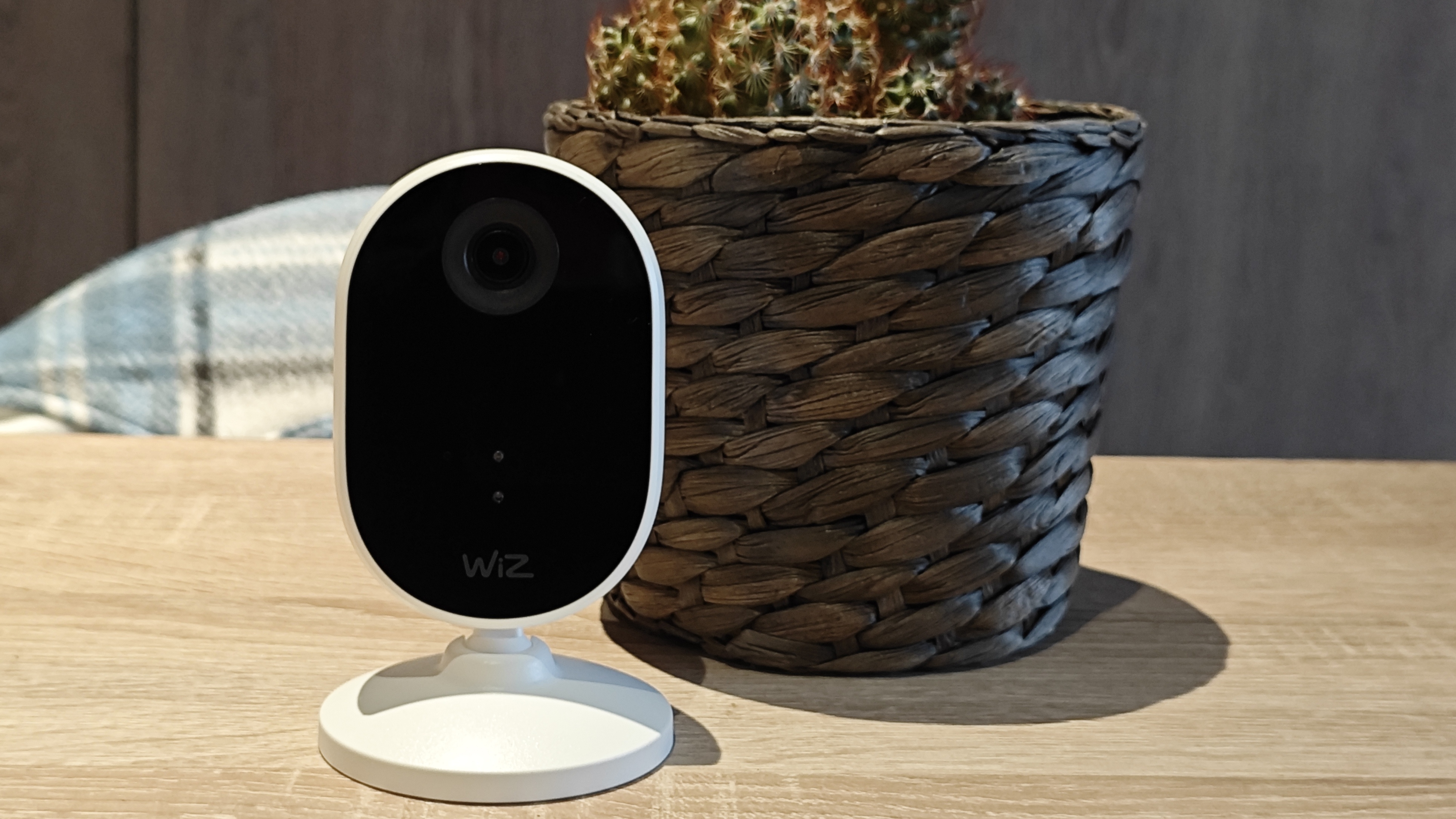
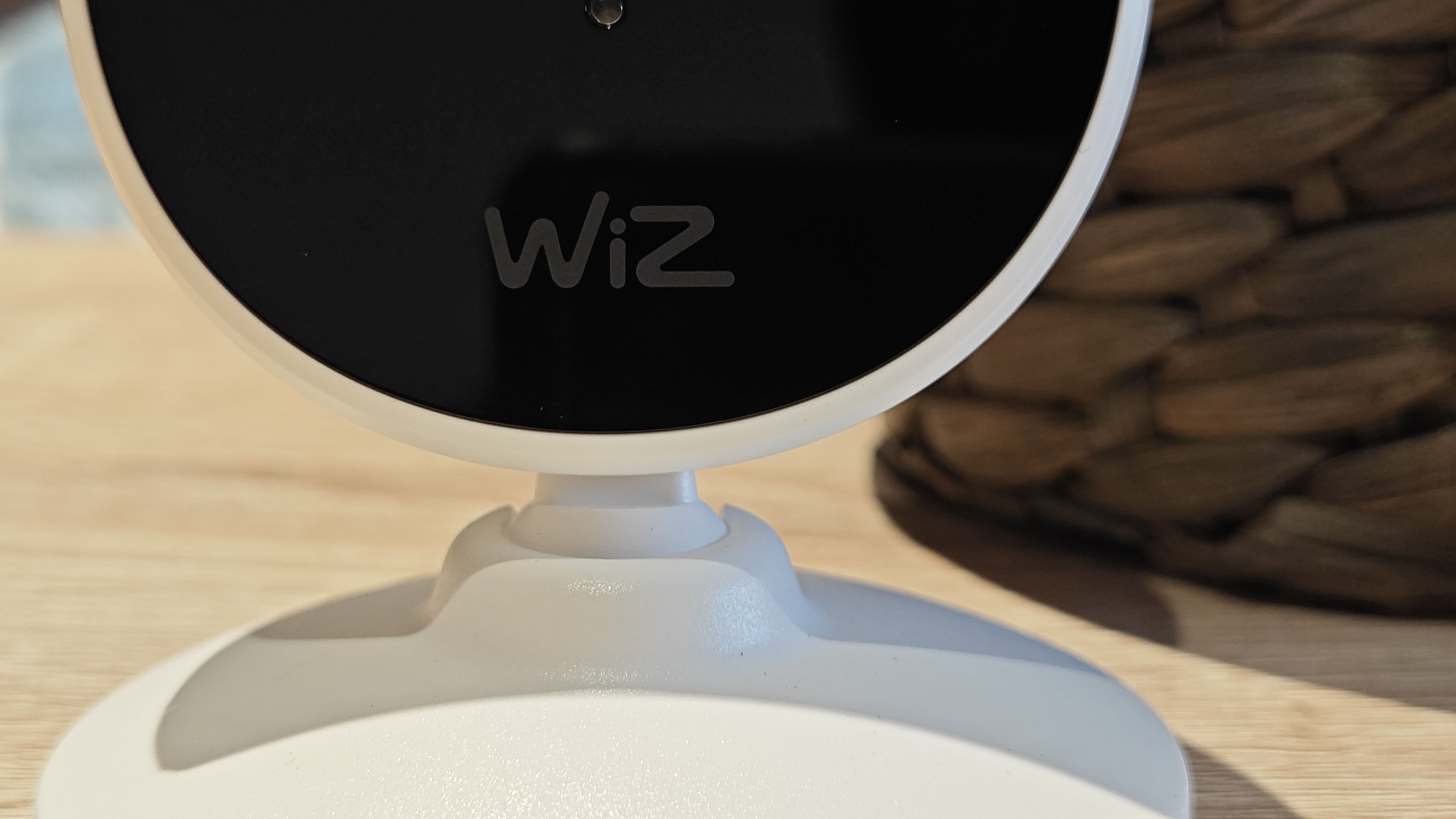
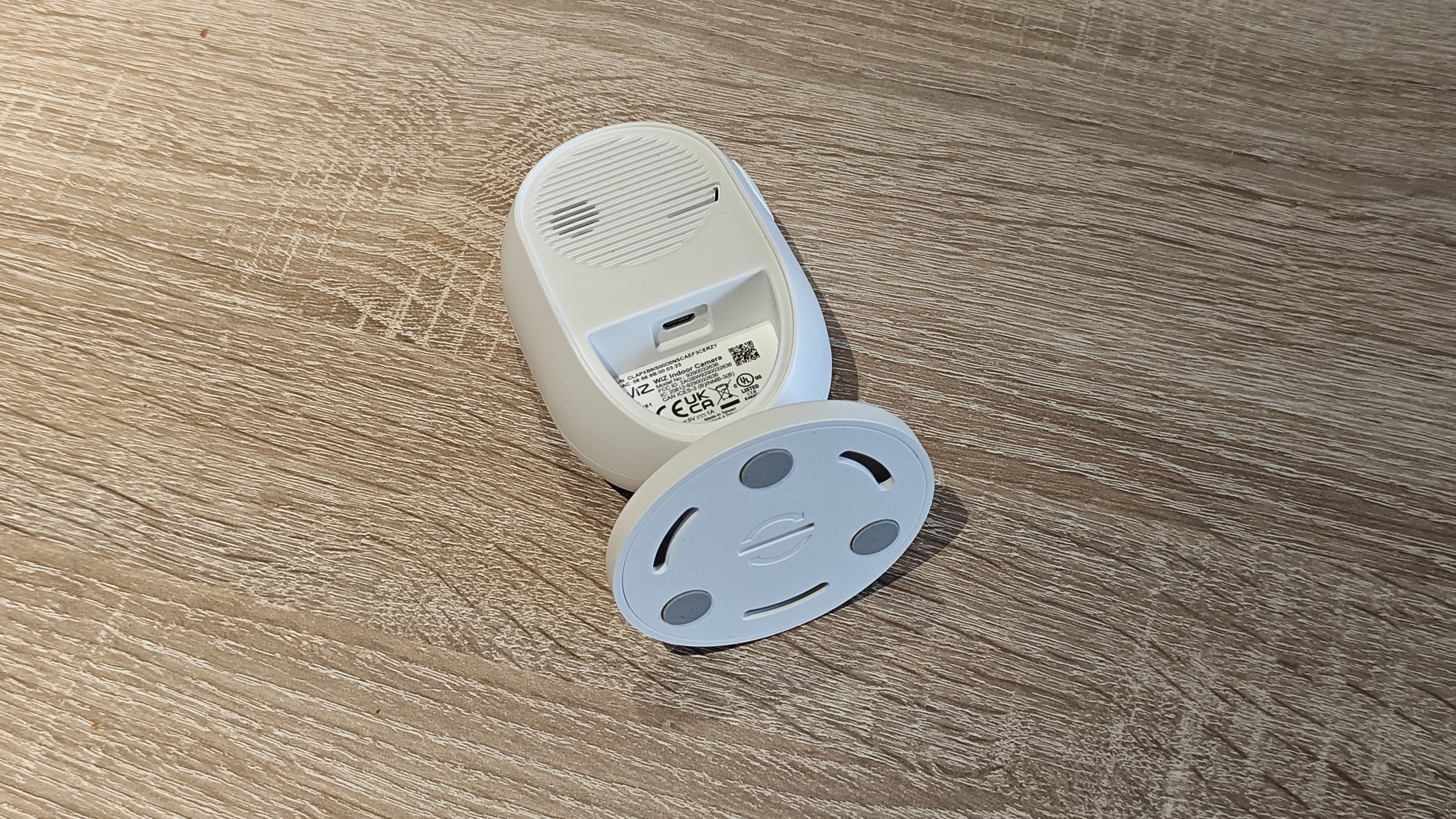
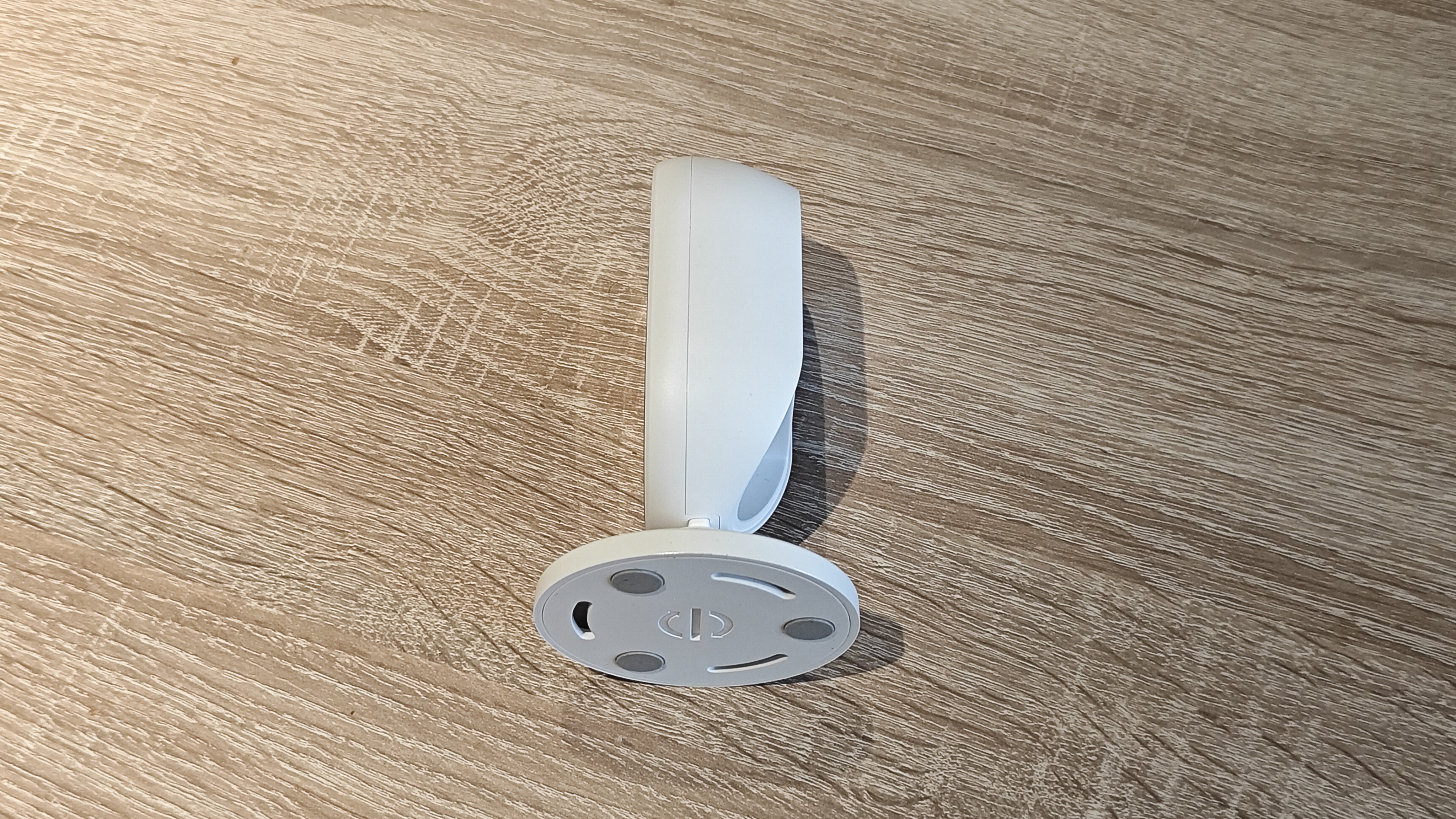
Specifications
Reasons to buy
Reasons to avoid
✅ You don't want to make holes in your walls: This camera can be used free-standing so you won't damage your landlord's property.
✅ You don't want to pay a subscription: A monthly plan is available for some advanced features, but it's not essential.
❌ You value style: This isn't the best looking home security camera around, focusing on function over form.
❌ You want the best quality footage: The WiZ Indoor Camera has a relatively narrow field of view, which is fine for small rooms but not ideal for large spaces.
The WiZ Indoor Camera is the company’s first foray into home security, and it's particularly well suited to renters and folks living in apartments.
It can be used free-standing, so there's no need to drill holes in your landlord's walls, and thanks to its SD card slot you don’t need to tie yourself into a long subscription to store footage. You also have a lot of customization available without making additional paymentes, though a subscription will offer 30 days of cloud storage, activity zones, and manual recording.
The WiZ Indoor Camera also comes with some other interesting features including SpaceSense, which works in conjunction with other WiZ lights to detect motion wherever you have the camera set up. Lastly, this security camera is compatible with Matter, Alexa, Google, SmartThings, and IFTTT so you should be able to pair it with just about any smart ecosystem.
Read our full WiZ Indoor Camera review
Attribute | Notes | Score |
|---|---|---|
Value | It's pretty affordable as a device, which is great, but so much of the real meat is behind a subscription that will rack up the price over time. | 4/5 |
Design | The new base plate and privacy cover are really nice additions, thought it would be nice to see a little more finesse in the finish. | 4.5/5 |
Performance | While it doesn't 'wow' us at this price, the specs and performance of the Ring Indoor Cam (Gen 2) are consistent and reliable. Plus, the app experience is decent. | 4/5 |
The best solar home security camera
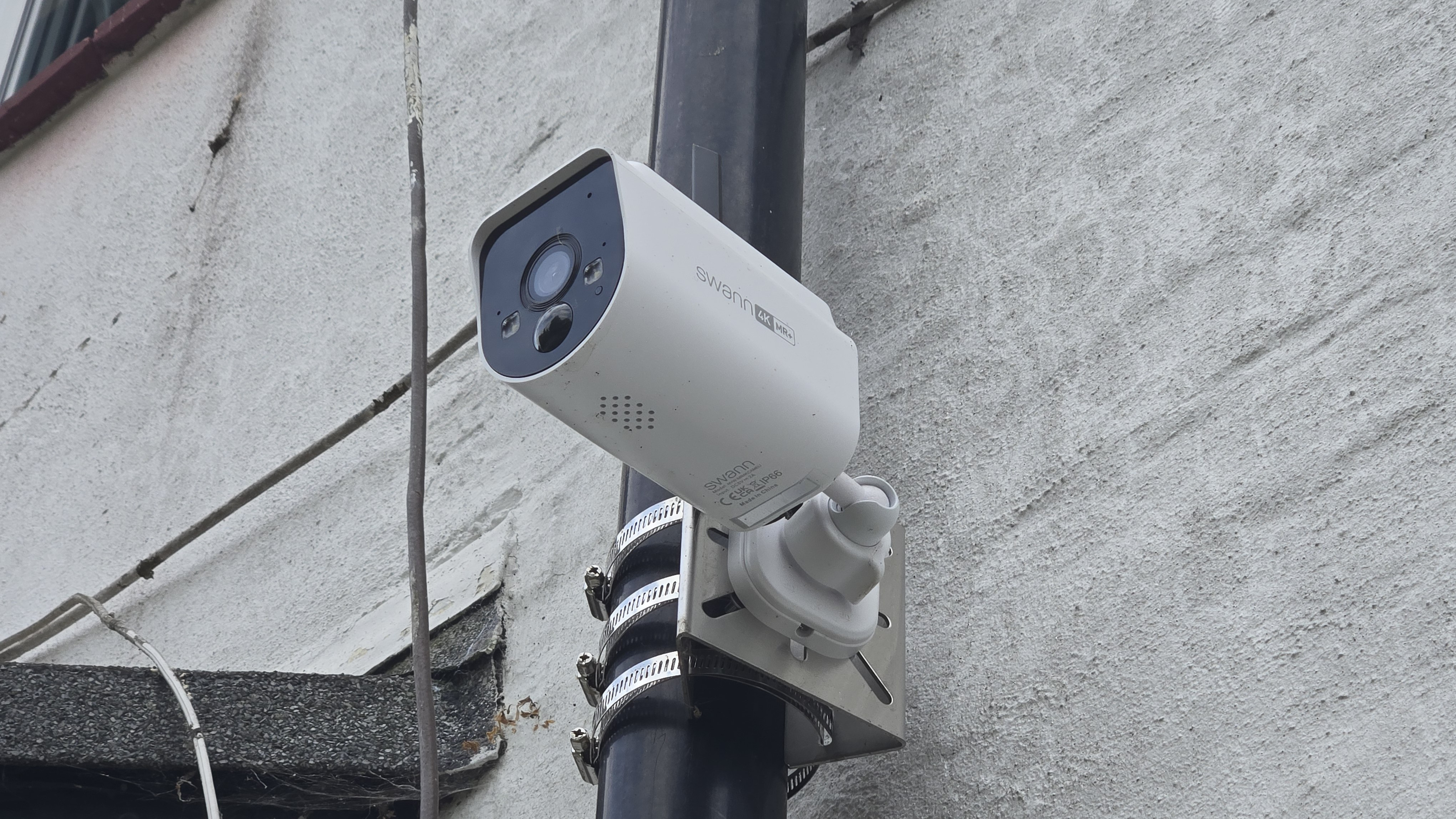
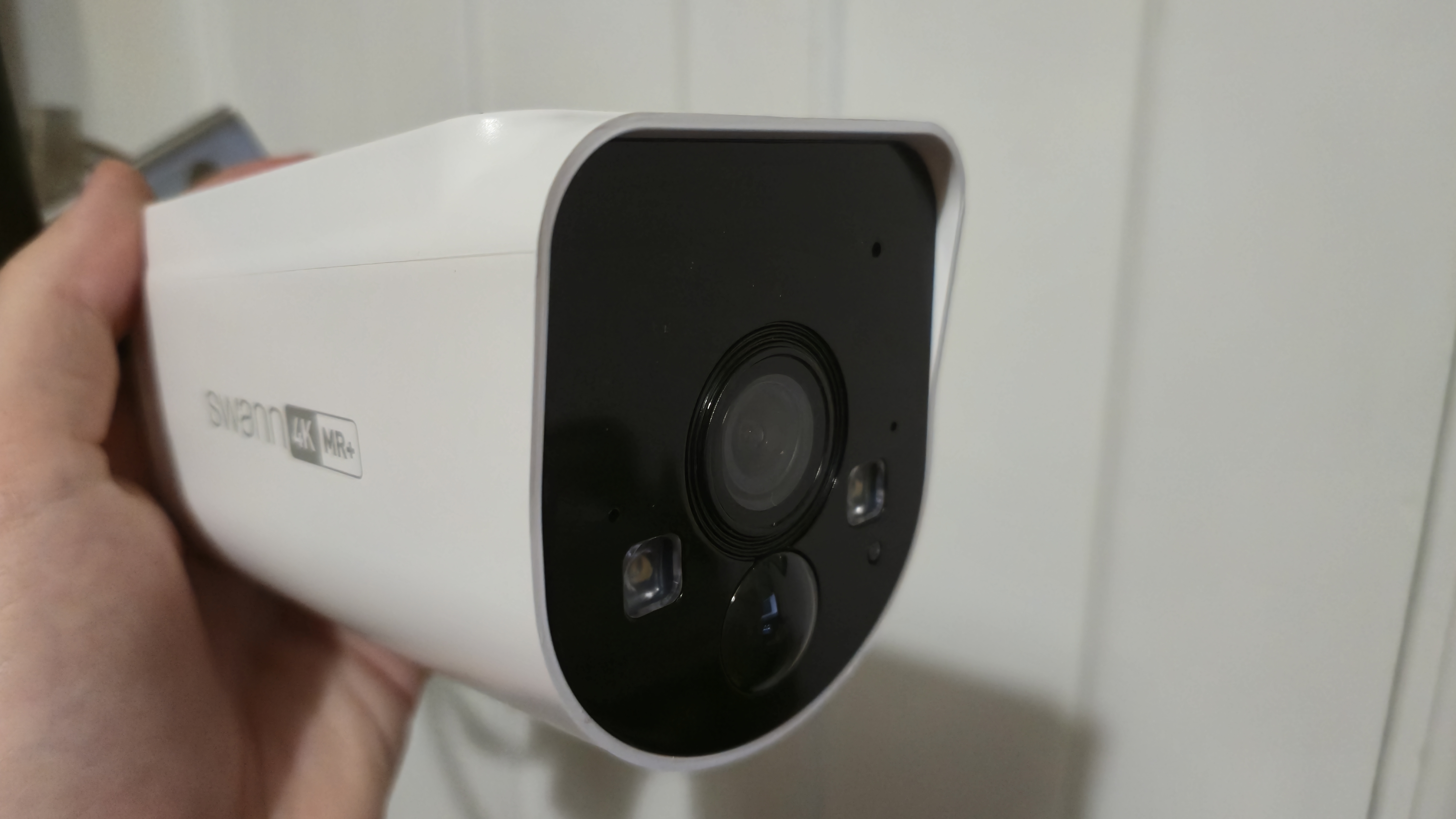
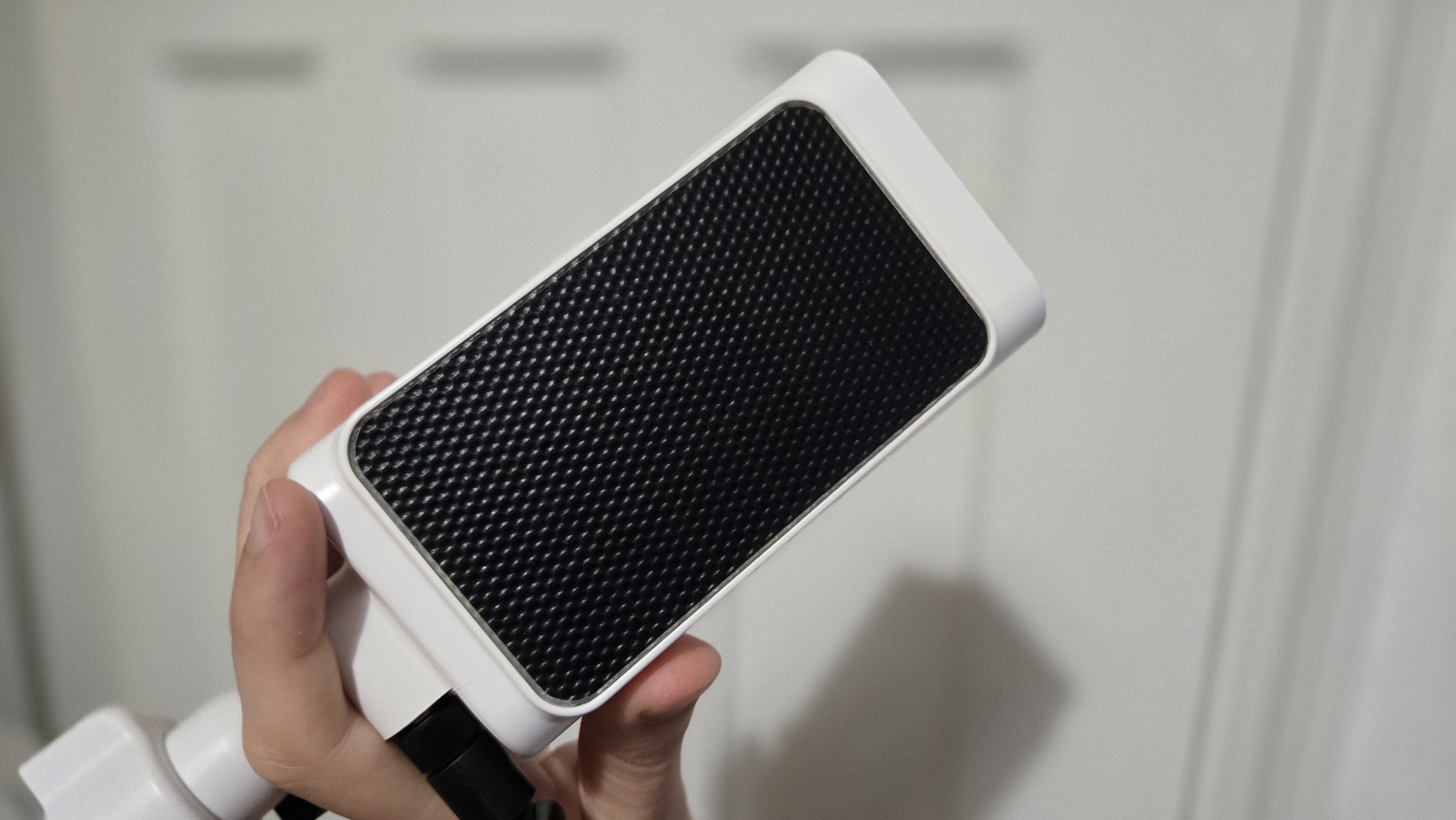
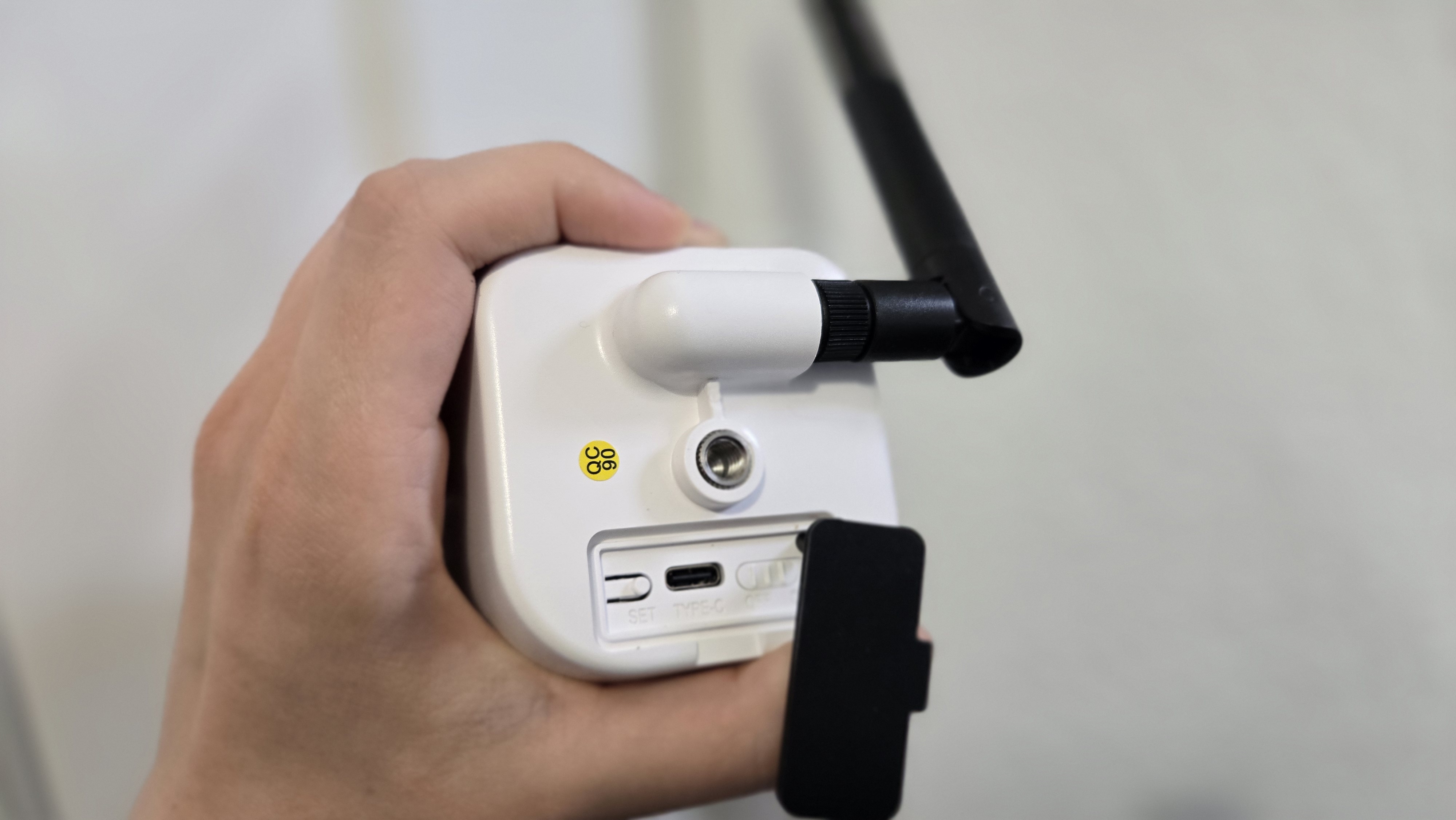
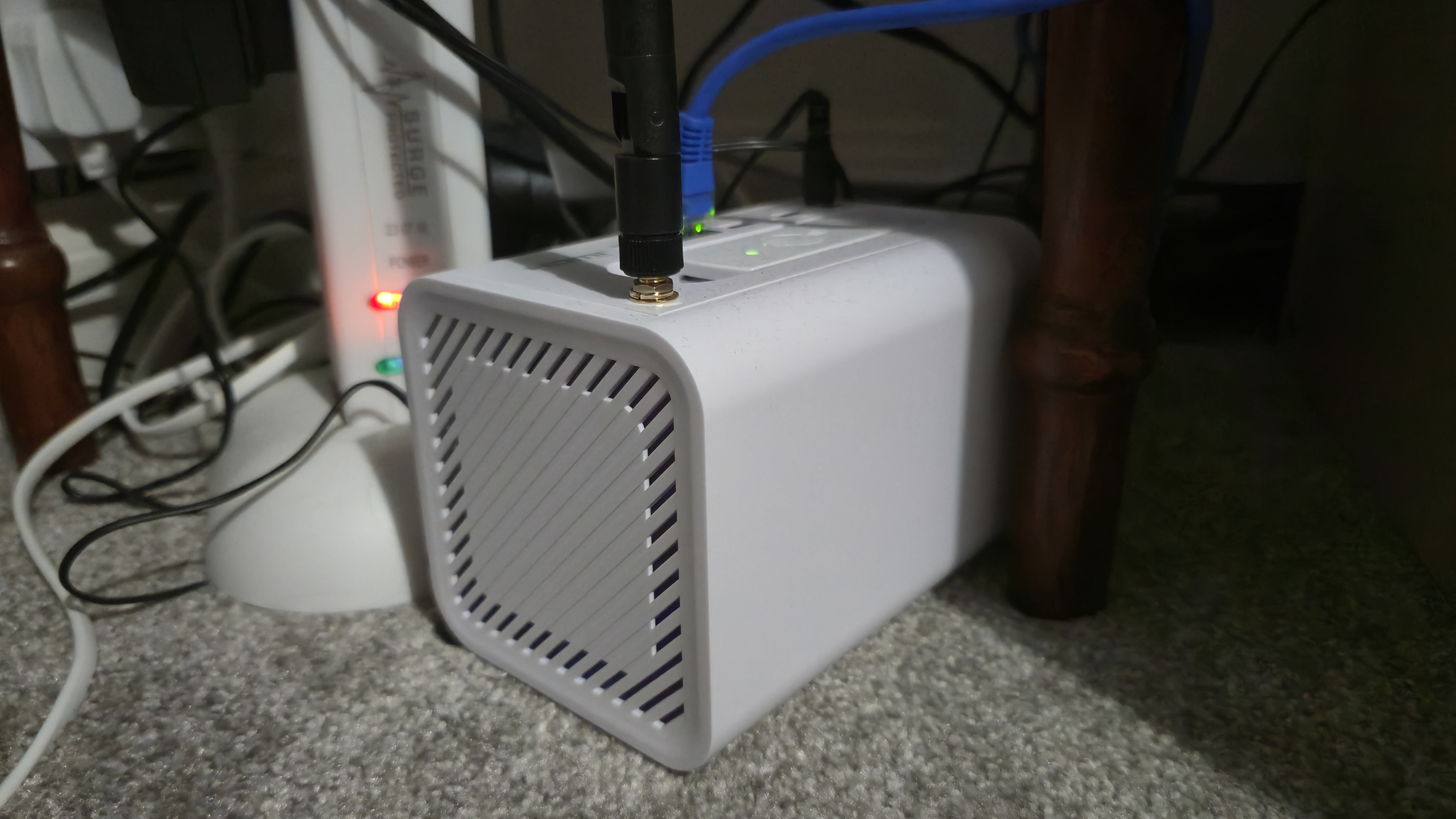
Specifications
Reasons to buy
Reasons to avoid
✅ You need surveillance for a larger space: With a 250m range, the MaxRanger4K Solar is well suited for homes that have generous outdoor spaces that you want to keep an eye on.
✅ You want a wireless solution: If your home gets enough sunlight, your MaxRanger4K Solar cameras won't need to be charged frequently. With the right settings and frequency of alerts, you might never need to recharge the cameras.
❌ You live somewhere that never sees the sun: Solar panels are awesome, but if you don’t get much sunlight at home then a wired security solution will likely be much more reliable.
❌ Every view includes a busy street: A busy street means a lot of alerts, which will run down the camera's battery. Detection sensitivity and other settings can reduce the strain, although this means you’ll capture fewer clips, which could impact security.
We reckon you get what you pay for with this high-end security system. Cameras are available to buy separately, but only as add-ons – in order to use them you'll need to buy a bundle of at least two, which will also include the central hub that provides Wi-Fi connectivity and 64GB of expandable storage for your videos.
There is a subscription available if you want extra features like package detection, but our reviewer used the MaxRanger4K Solar quite happily without it, safe in the knowledge that his clips never left his home. Over time, not paying a monthly fee to keep your videos will help make the initial cost of this camera system easier to handle.
The 4K footage is crisp and clear, and we were impressed how well the camera's TrueDetect sensor was able to differentiate between people, vehicles, and other disturbances, and label them in videos.
There's a pair of spotlights and a siren for added security as well, though we found we had to be careful when configuring each camera's sensitivity settings. Set them too high and the camera will be triggered too easily, which will drain its battery rapidly even if it's positioned in direct sun. Spend some time settings things up though, and you' might never have to worry about charging your cameras again.
Read our full Swann MaxRanger4K Solar review
Attribute | Notes | Score |
|---|---|---|
Value | You really do get what you pay for, and while the MaxRanger4K cameras are pricey, I’ve found they’re better quality and more reliable than cheaper alternatives. | 4/5 |
Design | It’s hard to find fault with the design of these cameras. They boast a suite of protection features, a relatively sturdy design, and a solar panel that helps to extend their battery life. | 5/5 |
Performance | Generally the MaxRanger4K does a good job of capturing fairly high-quality footage. However, it can run out of charge if you leave it at too high a sensitivity. If you live near a busy-ish street or somewhere where there is plenty of activity, you may need to play with the settings. | 4/5 |
We've also tested
We're constantly testing new home security cameras at TechRadar. Here are some of the ones that didn't make it into our top seven.
Arlo Essential Indoor Camera
This camera offers excellent video quality, but despite its name, it has a premium price tag that makes it harder to recommend than the other devices in this guide - especially when you factor in the cost of a subscription.
Read our full Arlo Essential Indoor Camera review
Ring Floodlight Cam Wired Pro
A heavy-duty external security camera, the Ring Floodlight Cam Wired Pro has two 1,000 lumen spotlights and a siren, but will be overkill for most home owners and requires existing wiring for installation.
Read our full Ring Floodlight Cam Wired Pro review
Blink Outdoor
A good outdoor security camera with much better battery life than most, and impressive motion detection, but not as robust as we'd like. Its glossy surface scratches easily, which is a shame.
Read our full Blink Outdoor review
Psync Camera Genie S
AI is this camera's main selling point, allowing it to tell you what it can see - in theory at least. Its image quality is very good, but during our testing the AI-generated descriptions were hit-and-miss, with the software 'hallucinating' people and objects that weren't there.
Read our full Psync Camera Genie S review
How to choose the best home security camera for you
Start by determining whether you need a home security camera that is weatherproof and can be used outside or if you are looking for a smart security camera you can place inside your home.
You'll also need to consider how the camera is powered. Some need to be connected to mains power, which may mean you need to employ a professional to install it, whereas others are battery-powered. Look for home security cameras with swappable batteries, so you can purchase additional batteries and ensure the camera isn't out of action for several hours when the battery needs recharging.
The quality of the video the home security camera records is also essential. Many home security cameras record in Full HD, although some record in a higher resolution of 2k and 4k. While Full HD is sufficient for most homes, if you plan to mount the camera up high, its field of view covers a wide area. Higher resolution cameras will mean you can zoom into the footage and still pick out precise details such as car number plates.
Most home security cameras record footage in color during the day, although it's in black and white at night. Some come with an LED that can be triggered when motion is detected to ensure footage recorded at night is in color and as a way to scare off any would-be intruders. In addition, some home security cameras have built-in alarms triggered manually from the app or automatically when motion is detected to help deter intruders.
Many manufacturers now integrate with either Alexa and / or Google Assistant and Apple HomeKit. Ring, for example, only work with Alexa whereas Arlo work with Alexa, Google Assistant and HomeKit. This feature is useful if you want to speak with whoever is stood on your driveway (for example), without you having the select the notification on your phone. It's also another way to sync up with the other smart home devices in your ecosystem.
Finally, consider how video the camera captures is stored - does it require a subscription to save video in the cloud so it can go back and be reviewed after it has happened? Again, remember to factor in this cost. Some cameras offer local storage, so you don't have any ongoing costs associated with the camera, either in the form of memory built into the camera itself or the ability to add a micro SD card to the camera or base station.
We've also got guides for how to secure your smart home and how to set up your smart home for further tips and tricks.
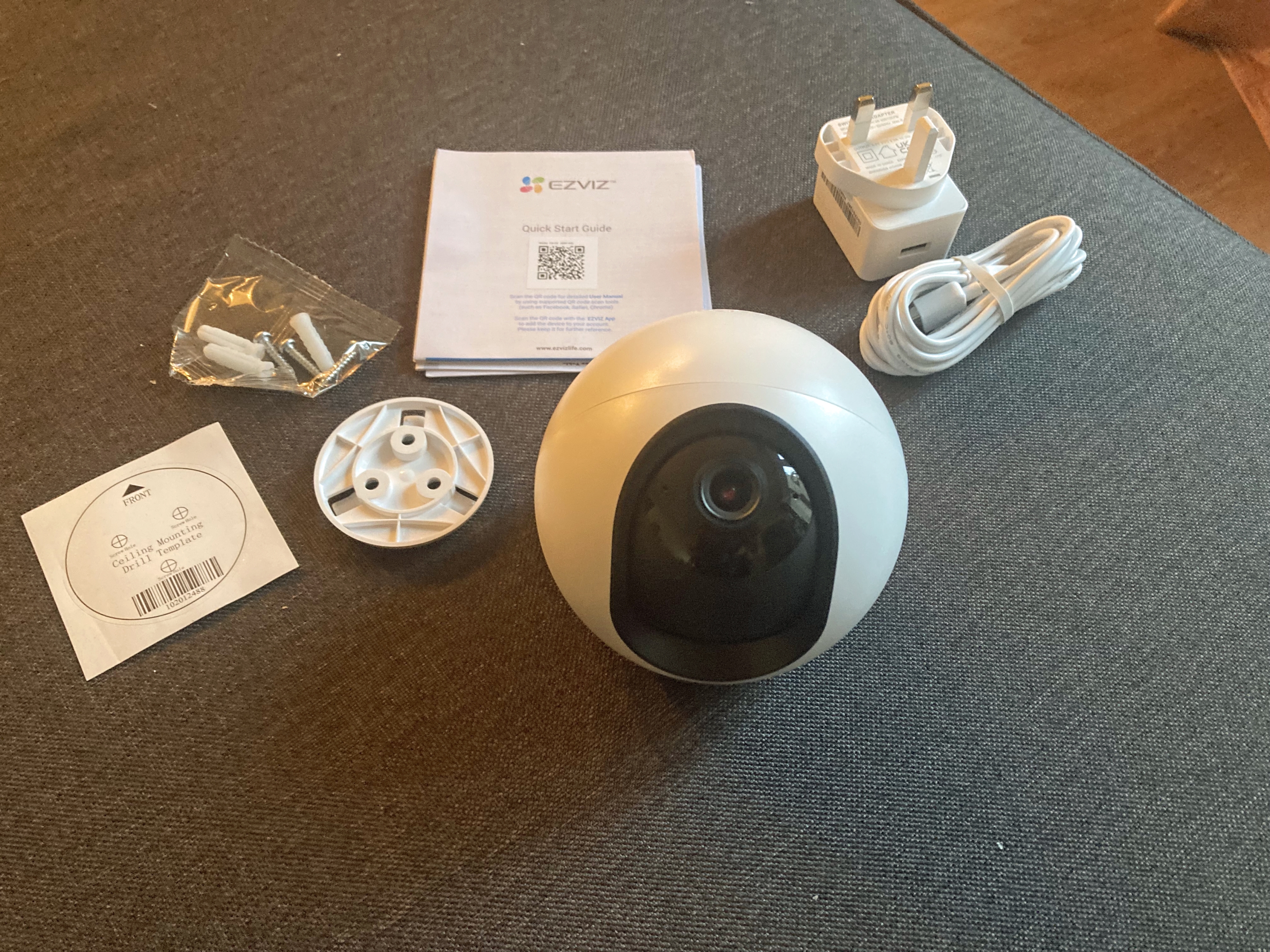
How we test home security cameras
To ensure the home security cameras we’ve reviewed can be fairly compared, we’ve tested and analysed several crucial features covering style, performance, and practicalities.
We rated each camera on the quality of the footage it records during the day and in the dark, how clear the two-way talk features are, and the settings to arm and disarm the camera. In addition, for each model, we wanted to know how easy the setup and installation were, as well as how efficient the cameras were at delivering motion notifications and whether AI features were designed to identify if the activity has been created by a person, animal, vehicle, or another source, were accurate.
Where relevant, we compared the battery life of each model, and for cameras with lights and/or sirens, we also compared the brightness and loudness to see if they were sufficient. We also assessed each model for its durability and design, looking to see if it comes with handy mounting plates and the ability to adjust the camera angle to suit your home.
Home security cameras FAQs
What is a home security camera?
All home security cameras offers a level of surveillance to your property whether you are at home, or away. Smart home security cameras specifically work with an app that displays live and recorded footage, along with some other fancy features that enable you to engage with the person (or animal) inside and outside of the house.
The price difference is generally down to the quality of these features; you'll pay more to receive 4K footage, than full HD footage for example. You'll also pay more for color night vision, facial recognition, and enhanced app features.
Can a home security camera save you money on insurance?
Possibly, though it depends on your insurer and the security system that you have fitted. According to price comparison site GoCompare, "Making your home more secure could help to reduce your home insurance premiums," though not all insurers will offer such deals, and they might only give discounts for certain approved security systems. Check with your insurer for details.
What type of home security camera do you need?
The two types of home security cameras are those for outdoor or indoor use. Indoor cameras tend to be cheaper than outdoor cameras because they aren't geared for outdoor weather conditions, and they won't have the longer battery-life that comes with battery-powered outdoor cameras.
Within those two types of security cameras are wired and battery-powered cameras. Wired security cameras would be best installed by a certified engineer, but you won't need to worry about recharging the batteries which can be a bit of a nuisance.
Do home security cameras need to be plugged in?
Not all models need to be plugged in when powering the best home security cameras. While there are plenty of mains-powered home security cameras on the market, suitable for indoors and outside, if you don't have access to a power socket where you want to install your home security camera, then fear not - there are many models that a rechargeable battery can power.
How long the battery lasts between charges will depend on how often the camera detects and records motion and how often the app is used to view the camera's live feed, but you can expect anywhere between one month and one year. Some home security cameras have swappable batteries, while others need to be removed completely to be recharged.
It's also worth noting that some home security cameras that offer a choice of power method may only provide certain features, such as activity zones, when used on mains power.
What's the difference between home security cameras and surveillance cameras?
Regarding securing your home, there are two options on the market; home security and surveillance cameras, also known as CCTV. So exactly how do they two differ?
Surveillance cameras have been around for decades, and see cameras are installed, usually on the property's exterior, although they can also be positioned inside. The cameras are connected to a central recorder by cables, and if you want to review the video, you'll need to connect the main recorder to a TV or monitor.
Surveillance cameras are generally more expensive than home security cameras. Usually, they require professional installation, but they ensure footage is captured without interference or the risk of a wireless connection failing or a camera battery running out. They also record everything and are only limited by the size of the central recorder, which is considerably larger than the capacity of a MicroSD card or the amount of secure online storage offered by home security cameras.
However, home security cameras are more affordable than CCTV and far easier to install. The footage is either stored on a MicroSD card inserted into the camera or base station - if the camera requires one - or in a secure area online, and you can review it from your smartphone or tablet, which means you don't need to find room for the central recorder and screen. However, most home security cameras don't record continuously, and if the internet connection drops, some cameras won't be able to record. Find out more about CCTV vs. smart home security cameras in our article.
Which security cameras work without a monthly fee?
Because many of the best home security cameras require a subscription fee to access all of the features, you should be careful not to purchase a device that doesn't do what you need it to without extra cost if you're not prepared to pay. Many cameras do, however, work brilliantly out of the box.
It's worth pointing out that almost all security cameras will work to a large extent without purchasing a subscription. Still, it's important to do your homework if there are particular features you want or need.
eufy - to get cloud storage for your cameras, eufy charges a small fee per camera for the basic service or a reduced rate per month for up to 10 cameras. You can save by paying for a whole year upfront. Find out more about eufy's subscription plans.
Arlo - similarly, Arlo charges for cloud storage, additional notifications, package detection, the 'call a friend' service, and theft replacement. Your camera also won't be able to tell the difference between a person, vehicle, or animal without forking out a little more per month. Find out more about Arlo's subscription plans.
Google - Nest Aware is Google's subscription plan, which gets you continuous video recording (rather than just the edited highlights), additional smart alerts, 30-60 day history, and support for everything from smart speakers to doorbells. Find out more about Google's subscription plans.
Swann - Swann's subscription offers 60 days of rolling storage on both the cloud and locally, TrueDetect (the ability to differentiate between packages, pets, and vehicles), lock screen alerts, an extended warranty, and a replacement policy in case of theft. Find out more about Swann's subscription plans.
Ring - Ring offers the longest video history in exchange for its subscription fee, giving you up to 180-days for all its doorbells and security cameras. You also get an extended warranty, cellular backup, person alerts, and assisted monitoring. Find out more about Ring's subscription plans.
For more on how to keep home security costs down, take a look at our guide to creating a security system on a budget.
Can wireless security cameras work without the internet?
Home security cameras are often called wireless security cameras. Does that mean they require an internet connection to work? In most cases, they do. Unlike CCTV, which requires cables to be laid around your home, wireless security cameras need internet access so they can send a notification to your smartphone when motion is detected, as well as let you view a live feed from the camera no matter where you are.
While some home security cameras record footage to a MicroSD card inserted into the camera, others store it in a secure area online - something they can't do if they don't have a Wi-Fi or wired internet connection. However, some models, including the Google Nest Cam (battery), will store footage locally for a short period if the internet connection drops, transferring the videos to the cloud storage space when the Wi-Fi is reinstated.
Do home security cameras invade privacy?
Home security cameras are designed to capture what's going on in and around your property. In some cases, the ideal mounting position means that as well as your property falling within the camera's field of view, you may also capture the road, pavement, a neighbor's driveway, front door, windows, or even their backyard, for example.
The same privacy rules regarding CCTV apply to home security cameras. So, you should be taking adequate steps to protect the privacy of those around you, such as your neighbors.
If you find sections of their property fall within the field of view of your home security camera, re-position the camera so this is no longer the case. If that's not possible, activate any features the camera offers to block out sensitive areas while monitoring your driveway or back garden.
We'd recommend telling your neighbors about your security cameras while showing them precisely what is and isn't being monitored and recorded by the camera. Also, consider placing the signs and stickers that often come with security cameras in your window to make passers-by aware that they might be monitored or recorded. Finally, find out more in-depth on this subject by reading do home security cameras invade your privacy?
- You've reached the end of the page. Jump back to the top ^
Sign up for breaking news, reviews, opinion, top tech deals, and more.

Cat is TechRadar's Homes Editor specializing in kitchen appliances and smart home technology. She's been a tech journalist for 15 years, having worked on print magazines including PC Plus and PC Format, and is a Speciality Coffee Association (SCA) certified barista. Whether you want to invest in some smart lights or pick up a new espresso machine, she's the right person to help.
- Josephine WatsonManaging Editor, Lifestyle
